Mr. Leith
She was 11, which at that time was a child. She went and stood near her mother and said, “Mr. Leith is cute.” Her mother was at the sewing machine. Every mother sewed, had a flower garden, had a box of recipes and wrote hers out for the others on her own cards. Or maybe not every single one. No, some didn’t have to, or didn’t know they had to.
Lucy was not going to. She was going to do whatever she wanted. She only said Mr. Leith was cute because of her older sisters, who used the word every day on the school bus and at the dinner table and in their room — they were twins and got to share a room. Not so long after that, Lucy would go right past them both, to words they would not have dared to speak. She came late, her mother always said to her father. She’s not the same as the twins, she has her own ways. Lucy knew that made her the favorite.
Mr. Leith was the plumber. He had been the little brother of the plumber — more than a dozen years between his brother’s age and his — and then his apprentice, and now he drove the Leith & Leith truck alone. He would be in the kitchen where the pipes and spigots were giving out or he would disappear down the ladder to the well. When his brother was gone, he began to bring a dog with him, a hound. The dog stayed in the truck; she would put her paws, carefully one at a time, up on the rim of the truck bed so she could think about stretching her neck down to be petted. Her eyes scanning the house for Mr. Leith were a lighter brown than her coat. Amber, Lucy’s mother said. They shone as if with tears as she looked for Mr. Leith. She wouldn’t look directly into Lucy’s eyes when Lucy stood there petting her.
Mr. Leith would be 32 in August, her mother said. His brother had had his heart attack at 46. When he was on his own after his brother died, Mr. Leith had gone to the pound to get the dog, whose name was Brownie, so as to have company on his rounds. They were always on their own, the Leith brothers, poor things, her mother said. Never did have much in the way of a home. How do you know? Lucy said. The mother died before the war, her mother said, and the father drank. Tom Leith never did marry, but this one got married in his teens.
Lucy could see for herself that Mr. Leith was not cheerful. She could remember the older brother laughing at him and bringing her Snickers bars.
Mr. Leith the Second. That’s what Lucy calls you, she heard her mother tell him one summer day. That day two things struck Lucy. First, she stopped in the kitchen doorway and looked at Mr. Leith half under the sink. She saw his long back and his waist. She saw his jeans. When he hunched his way out she saw his shoulders spread to their full extent and his hand go to the back of his neck. She felt herself sucked into another body. She put her hand on her own neck under the hair she was growing long.
Won’t you have a cup of coffee? her mother’s voice said. This irritated Lucy because it was what her mother said to people who had dropped in, and then they stayed. Usually she said tea or coffee, but she didn’t offer Mr. Leith the choice. No thank you, he said. Thought I’d take a look in the well, he said, as if the well with its unsteady pump were his own to look at if he chose.
Later in the day he was in the kitchen again with his tools and Lucy went in and asked him about the dog. Why can’t she get out and run around? Or come in? We could let her in. No, he said calmly. He didn’t say anything more and the sensation she had had earlier when he was under the sink went through her again, followed by a wish to be mean. She said to him, Don’t you get all dirty when you have to do this stuff?
No, he said. He held out his clean hands and looked at them. Some heat came to her face and she shut her eyes and rubbed the eyeballs through the lids. What did your father die of? Your brother I mean. I mean I used to think he was your father. When you both came, whenever that was, when I was young. You always came with him. I thought you were his kid. And why can’t your dog come in? Now she was talking a mile a minute.
He was a father, more or less, said Mr. Leith. Less, he said after a pause. That was when he looked straight at her as he was standing up and she thought she couldn’t breathe. She don’t want to get in anybody’s house, he said. She’s a trained dog. I trained her. I’m the on’y one she wants to be with.
Why do you say on’y instead of only? Lucy said. She couldn’t stop herself.
Why do you say what you say?
She was ready to pretend that made her mad. Without looking at him she was scuffing her foot on the rag rug. Now he had his subject, though, the dog. She was the best dog they had over there, he said. She’s voice trained. I don’t have to raise my voice. I’ll say her name, or what I want her to do. Or I’ll lie two fingers on her back and she’ll stop what she’s doing and wait for me to say.
Lie two fingers? Lucy said. She almost gave him the rule for lie and lay. She could tell he had been told about it, maybe gently by her mother the teacher, and had it wrong. Instead she said, How can she tell how many it is?
She knows.
Why doesn’t he talk? she asked her mother out on the porch where she couldn’t be heard.
He’s tired and he doesn’t have anything to talk about, her mother said, as if those were accomplishments. It’s his wife Jewel, she added. She’d make anybody tired. Always waiting for the check.
Her mother always gave Mr. Leith his check through the truck window, as if she had just remembered and had to run out with it and make him roll the window down.
His wife’s pregnant, her mother said, and her brown eyes took on a shine like the dog’s. Pregnant, she said again.
Later her mother kept talking to him about the sink and the well and the bill. They had sat themselves down at the kitchen table. Lucy couldn’t hear her and he wasn’t answering. Her mother had lowered her voice as she did with the twins so they would have to quiet down about boys and listen. He had his head down while she talked in the low voice; he wasn’t saying anything. A silence fell. Lucy could hear the mutter of the tractor with her father on it at the back of the farm. While it was going on her mother laid a hand on Mr. Leith’s forearm. After a minute he put his own hand on top of it.
For years Lucy could think and think about this without being able to see exactly how it came about so slowly and without surprising her. Mr. Leith, Mr. Leith, she always said to herself when she remembered it. She could see her own hair almost to the shoulders and she could still see the face of the dog in the truck, but not his face, bowed over the kitchen table.
Valerie Trueblood has published short stories in One Story, Iowa Review, the Seattle Times, and The Saturday Evening Post, among others. A contributing editor to the American Poetry Review, she has also authored a novel and short story collections, most recently Terrarium (2018).
This story is featured in the July/August 2020 issue of The Saturday Evening Post. Subscribe to the magazine for more art, inspiring stories, fiction, humor, and features from our archives.
Featured image: Shutterstock
Liz
Well, I was going home from school. In June.
I did see the car. Just in the side of my eye.
Someone screamed something in my ear, it seemed like.
Oh, Jesus.
I was flying.
*
“Where’s my glasses?”
That’s the first thing I wrote down when I woke up, Mom told me. Later, she brought me my glasses case and opened it. It was just full of bits of plastic and glass.
What happened was …
What happened was the woman driving the car hit me hard and I flew into a car coming the other way that was stopped. That car had a hood ornament that looked like an angel. My head hit that angel and the wing went into my head.
“The wing broke into bits. They got all the bits out except one.”
“When will they take that one out?” I wrote.
“You’ll just have to live with it,” Mom said.
I’m living with it.
*
I didn’t have a lot of friends, anyway. I had two good friends. Ben and Yo-Yo. After high school, they stopped visiting. Sometimes they called, but then they stopped calling.
“That’s normal,” Mom told me. “Friendship is important, but not friends, not really. People throw friends away. Even when they’re like family. They toss them out and find new ones. You’ll find new ones. Ben and Yo-Yo don’t matter. Forget about them.”
I tried to forget about them.
I’m still trying.
*
I get headaches, I get migraines. I used to get seizures but the medicine helps. Nothing helps the migraines.
When the aura shows up …
I close my eyes.
I picture a silver wing flapping on a screen, like a movie.
When the pain fades, so does the wing.
The credits roll …
Then I open my eyes.
*
One morning …
I saw Dad standing on the lawn talking to — I wasn’t sure who. A blonde-haired woman wearing a crucifix. When she wasn’t rubbing her eyes, she was rubbing the crucifix.
I wondered what they were talking about.
When I opened the window a crack, Dad looked back. The woman looked over his shoulder. Right at me.
Dad kept talking but the woman … She wasn’t listening.
After a minute, she pulled a bicycle out of a bush and hopped onto it. She rubbed her eyes. She rubbed her crucifix. She looked back at me one more time.
She started pedaling.
*
You’re the only one on this planet. You’re the loneliest person on earth.
I try not to think that.
You’re the loneliest person on earth.
It only feels like that.
Millions of people are lonelier than me.
That’s what I tell myself. Over and over.
As many times as it takes.
*
I heard crying, so I came out of my room. My parents were both on the sofa. They were staring at — someone was sitting across from them, in the armchair.
It was the blonde-haired woman.
When she saw me, the woman sobbed even harder. Her makeup ran down her face, onto her crucifix.
Mom said: “This is Liz.”
Dad said softly: “She’s the woman — ”
I didn’t hear the rest. I didn’t have to.
The woman turned to me. She rubbed her face but that made it worse. She was a mess.
She held out her hand. There was mascara all over it. I couldn’t look at it. I looked at the floor.
Mom said something.
Dad said something.
I lifted my head.
The woman was still staring at me.
I wheeled backwards into my room.
I closed the door.
*
My hand fell into my cereal bowl and I started writing nonsense. Like I was possessed.
Mom rushed me to the hospital.
They squeezed me through a couple machines.
It wasn’t a stroke, the doctor explained, just a migraine. A rare kind. He talked to my parents alone for a bit. Then he sent me home.
“You’re going to be fine,” Mom said, closing the blinds.
I tried not to picture the wing.
I did anyway.
*
Liz came by one day when Mom was out getting my seizure medicine.
She knocked on the middle of the front door a million times.
Then she was knocking a lot lower down. Near the crack in the bottom of the door.
I just listened to her moaning.
Eventually, she went away.
*
I ran into Yo-Yo’s dad at the post office. He looked the same except for the mustache.
“Yo-Yo’s pretty busy. He’s still playing football. Starts school in the fall. Trade school. Wanted to be an engineer but he wasn’t serious. Cars are more his speed, machinery. He can fix anything, that kid. There’s good money in it. Your dad’s a mechanic, isn’t he? Or he used to be? There’s good money in it.”
I watched the fat drop of sweat growing on his forehead. It ran down his nose, into his mustache.
He swallowed.
I blinked.
He disappeared.
*
MOM: I can’t help it. I feel bad for her.
DAD: Should you?
MOM: She’s a lost soul.
DAD: We have one of our own.
MOM: Shh.
DAD: Fast asleep.
MOM: …
DAD: …
MOM: …
DAD: I feel bad for her, too.
*
Millions of people are lonelier than me.
It’s a big planet.
Millions of people are lonelier than me.
They have to be.
*
There’s a park not far from our house. You only have to cross one street to get to it.
When I was halfway across the bridge that goes over the duck pond, a woman on a bicycle almost rode into the water. She dumped her bike in the reeds and started walking fast towards me.
I’d’ve known who it was just from the sobbing.
I squeezed my wheels. I closed my eyes.
The sobbing got louder.
I squeezed the wheels harder, shut my eyes tighter.
Liz didn’t say anything. She just stood in front of me.
I counted to ten.
I counted to ten again.
I was getting a headache. I was breathing hard. I was picturing the wing.
You’re the only one on this planet.
You’re the loneliest person on earth.
Then the wheels started moving. Under my fingers.
I still didn’t open my eyes. I didn’t have to.
I could tell we were going … around the duck pond. Past the bird sanctuary. The playground.
After a while, the sobbing stopped.
I was breathing deep, but not as hard. My head hurt just a little.
Past the flower garden. The fountain. Across the street …
I was breathing alright, now. Surprisingly. I was feeling alright.
Eventually, the wheels stopped turning.
The wing disappeared. The credits rolled.
I opened my eyes again.
Mom was waving in the window.
Then the front door swung open.
Featured image: Rolli.
Fledglings
Sook and I meet at the Bigelow Airlock. There is never much time. We never need it.
My space station orbits Earth’s equator every ninety minutes. I see sixteen sunrises per day. The temperature swings four hundred degrees. Sook’s Jiānkòng has a polar revolution of one hundred minutes. Newtonian math for traveling the radial bulge (Rb) y at velocity (v) x means we come within shuttle-shot twice every fifteen days. So, in ninety minutes Sook will launch back to her satellite on its second proximate, bi-weekly pass.
Until then, we float lazy river-style toward each other, unzipping our suits, only to collide like newborn colts, in hovering fervor. Our bodies have shed their meat and deteriorated from years of weightlessness. Our fluids have dispersed and settled into our faces so we look like bobbleheads. My bones resemble an orchestra of musical instruments.
In the U.S. BioLab, I study brawny microbials from a moon crater. They have vascular biceps on their flagellum. Sook helms her Chinese satellite, keeping tabs on her country’s borders as the war between Eurasian Hostile territories escalates.
The Space Station moves at five miles per second. I orgasm in a whopping 275 miles.
“I admire your efficiency,” Sook always says. Her English is superb. She gets every channel in her satellite. Sometimes she offers that the zero-G has redistributed hers — her G-spot, that is — and I’ll poke her heels and earlobes in hunt, thinking her pity is actually an honest-to-God truth, and that maybe I’m capable of something I’m not.
After sex, of course, I pass gas. Three years in space has made me a whoopee cushion.
“What is a whoopee cushion?” Sook asked once.
“Something made in China,” I said. “It distracts from the obvious.”
“What is the obvious?” she said.
“That I’ve fallen in love with you.”
“You cannot fall,” she said. “There is no gravity. And that is not the obvious thing.”
“What is then?” I said.
“Luke, our time is up.”
Out the porthole, a procession of international space junk crested the globe.
I still don’t know what the obvious thing is. We never circle back in time.
When Sook launches her shuttle toward Jiānkòng, I wave using the station’s large robotic arm built by the Canadians, hence its name: the Canadarm. The Canadarm is left-handed, which for some reason I feel is a very Canadian thing.
We jettisoned what lives we had to be in orbit — cargos of virility, fertility, family. Down there, you think these are patient, deferrable things. Up here, you understand the world doesn’t revolve around you. Lately, I’ve been occupied by what feels like a reJesusing. I think it has to do with the fact that I’ve been moving for three years but haven’t gone anywhere. It’s like I’m the only one on Greenwich Time. What else am I supposed to do but fall ass-backwards into love and sneak a little international, galactic nookie?
Sook’s radio silence for those one hundred minutes, she explains to Beijing, is “feminine care” and the men in charge smoking unfiltered cigarettes down there don’t probe. It’s magic how she gets under their skin with the idea that a woman can have a secret. They won’t ever ask after it, believing that their curiosity is a vulnerability.
“The stubborn stupidity of men,” I said. “We’re not so different in that way, in many.”
She said, “But we still are in most.”
I guide her into Bigelow with the Canadarm like one sets a fallen fledgling into its nest.
Which you’re not supposed to do, handle a baby bird, I know.
“Progress, Innov8?” Houston asks.
I had a flea circus as a boy. I wanted to be a ringmaster more than an astronaut.
Then the circus died.
“No,” I say. “The flagellum biceps are still at a diameter of twenty nanometers.”
“Keep at it,” Houston says. That is, keep exercising the bacteria, in a nutshell.
You make a vaccine from the dead of the very thing you want to kill. Our current theory? Bulked-up dead bacteria will make stronger vaccines than regular-sized ones. I look down at the United States and salute.
The sun sets. An hour and a half later it rises again.
“I was six when my father was sent to prison,” Sook told me once. “He worked in leases. In China, people own their homes but lease the land beneath them. He must have discovered something. He had no due process. He was refused counsel. He was convicted of ‘obstructing traffic.’ This year will be his thirty-seventh in solitary confinement.”
She scratched frost off the porthole, “I should feel lucky. Many have it much worse.”
“Our neighbor vanished for asking about Tibetan books for the schools,” she said.
“Still,” she said. “Many have it much worse.”
“Executions are carried out in vans. People pulled right off the street.”
“The number of annual executions is a state secret.”
For some reason, I thought of those fancy restaurants that don’t put prices on their menus.
Dad left parking tickets under the wipers until they disintegrated, flew a flag on his truck antenna, and was ejected drunk from the bleachers of my little league tournaments. He wanted to be shot into space when he died. He’s buried in a can on a hill with a decent view of the western sky. I wish he could hear me transmit, “This is for yelling at me to crowd the plate, you bastard!”
“But how do you know your father is still alive if you can’t see him?” I asked.
Which is maybe why she stopped telling me things like that.
I stick a piece of tape over the BioLab’s camera.
“We can’t see you, Innov8,” Houston says.
“The camera is malfunctioning,” I say. “I’ll fill out a Tech Diagnostic. But there’s been progress. The flagellum biceps are now twenty-two nanometers. I wish I could show you. But you’ll see when I land … ” My indigestion gurgles. The methane has made me sulfuric. I must taste like well water to Sook. I keep thinking about bushwhacking an acre, building a bait shop, getting someone pregnant. I can’t get the idea out of my heart.
“Land?” Houston asks. “No, no. You are to proceed to Phase Two.”
“Phase Two?” I say.
“Place them in the antigen unit to initiate vaccine production. Swab the control bacteria onto your teeth and wait. You will need to be specific with your condition throughout your quarantine, pre- and post-inoculation, until the camera is repaired.”
“How many phases are there?” I say.
“As few as two,” Houston says. “Depending.”
I’m somebody who was told that if I kept my nose to the grindstone, rolled up my sleeves, and kept my eye on the ball, then the sky’s the limit. So now I’m up here with a petri dish of unknown muscular microbials on my gums.
I’m somebody who is maybe beginning to feel warm, get the eyelid sweats, see spots.
I log: Feeling flushed. Eyelid perspiration. Spotted vision.
I’m somebody thinking about the time I put a fledgling back in its tree. You don’t do this because if a fledgling smells like a human — an intruder — the mother will abandon it. But I couldn’t stop looking at it in the grass, its open beak like a ceramic pitcher. I couldn’t just leave it. I learned later that when a fledgling leaves the nest it rarely returns.
Sook pounds on the Airlock, running out of oxygen. I let her in as fast as I can.
“Where were you?” she gasps.
“Didn’t you get my transmission?” I say. I’ve got bacne shaped like a two-foot microbial.
“Our time is up,” she says. “Look.”
But there is no procession of space junk, no Jiānkòng. My gut sinks, defying zero gravity.
What she’s talking about are these two humongous pink clouds over Eastern Europe. They look like lost-and-found tutus, and move like a flip-book animation of a toddler’s colorings outside the lines. Then there’s a bright flash over the Middle East, and a third pink cloud disperses. Then another flash and a fourth pink cloud over India’s peninsula.
“Oh, my God,” I say. “Sook, what in the hell are those?”
When I turn, Sook’s hands cover her full moon face. She’s crying out her fingernails. Droplets squeeze from beneath each cuticle and float. Her fluids have redistributed again. “They should have heard this from me,” she says. “They must realize I am not in the lavatory. They must know my secret—that I am here. I cannot go back!”
“You can,” I say, hunched with indigestion. “In seventy-two minutes.”
“I cannot,” she says. “I smell like you.”
The whole hemisphere that includes China turns an opaque pink, like a rash.
I admit, I’m so afraid that I fart. It propels me into Sook. She kisses me hard.
“I’m sick!” I say. “I’m supposed to be in quarantine!” I rush-float back to the BioLab with Houston calling and calling, and me not answering, them frantic with emergency, asking what the pink clouds are doing, Maydaying, relaying reports of intercontinental wilting and eroding, bruising and blistering, foamy aspirations and convulsions by the millions, while I take the vaccine to Sook and plunge it into her shoulder. “It doesn’t matter,” she says.
“It matters!” I say. “That was my only vaccine!” And I realize: I’m going home to that pink Earth. I’ve failed the mission. I’ll need treatment. They’ll hook me up to machines and flush me out and dismiss me from service, but I’ll be home.
If they try to keep me up here in quarantine there will be protests.
Sook corkscrews over my clammy head and says into my ear, “I fell in love with you also, Luke.” Though, I know in her voice it isn’t true. “But you should have saved that needle for yourself, you stupid man. You cannot save me.”
“But you could’ve died!” I say.
“I could have it much worse,” she says and floats into a ball on the floor.
We have circled back to the obvious thing.
Featured image: Towhee Bunting (John James Audubon, Smithsonian American Art Museum, Transfer from the U. S. National Museum, Smithsonian Open Access Collection, CC0)
Awake, O Sleeper
Wake up, O sleeper, rise from the dead, and Christ will shine on you.
–Ephesians 5:14
Mother was a ballerina when she was young, and when I was a child, I would sneak up the hallway on my hands and knees to watch my parents dance. She moved like the ocean, arms rising and lowering with the music, legs reaching for the coast. Her hair was long then and she tied it behind her before they began, lifting it up in one growing strand, twisting it on top of her head then through itself in a loop. I often wondered how a man like my father caught her. Mother was educated; she spoke six languages. My father, on the other hand, barely spoke at all.
As a family, we rarely left the house because everyone else came to us. Each day brought a visitor of some type: church ladies, encyclopedia salesmen, my father’s friends from work. One summer, Mother taught dance in the kitchen and the house was full of girls, more than I’d ever been around at once. They paid ten dollars an hour and Mother showed them how to form the five positions.
First position was always the easiest. Feet side by side, arms forming a cradle. There I found stability and calm. But second position was hard. The girls boldly spread their legs and arms, eager to take flight. I, on the other hand, always lost my balance and had to bring my body back into itself, then slowly slide out from there.
After a few weeks, I decided it was much more pleasant to watch Mother dance than to try it myself. There seemed to be fluidity in the way she transformed the kitchen counter-edge into a barre; everything she touched seemed to be in the midst of metamorphosis. Even my father seemed in constant change under her touch. He had been a coal miner before they married, hands black and calloused. But the father I knew had soft hands, light as they took Mother’s waist.
After they’d finished dancing, my father’s hands would reach down to lift my sleeping body. I would wake up somewhere along the journey, head bobbing with the rhythm of his steps. I remember thinking this was the best feeling in the world — my father carrying me to bed. He’d lay me down and pull the blanket up to my chin. Then I’d fall asleep again and dream about them dancing.
As I grew, I learned this made me different; no other child lived his life inside music like that. But I suppose all great artists were brought up inside one art form or another. The parents of poets read to their children; the parents of painters keep oils around the house — tubes of cerulean blue lying in the kitchen drawers, vats of crimson tucked under the bed with shoes and old T-shirts. I’m a musician now, so of course my parents played music when I was young.
Mother, you see, was also a singer. When the radio was off, her voice filled the house. Mostly spiritual songs — not the “contemporary” music megachurches play now, but hymns — real hymns — songs that only a piano or an organ could play. “All Creatures of Our God and King,” “The King of Love My Shepherd Is,” songs you only hear now at weddings. When the churches stopped playing them, Mother quit going. Worship was more about music for her than God anyway, and she decided her best praise was singing good songs at home as opposed to humming bunk with the masses.
I think that’s one reason why the church people visited so much, encouraging us to come back. They weren’t concerned about the tithe we gave or the future of our eternal souls: They wanted mother in choir. The loss of her voice hit the sound with a sharp-edged sword. “The soprano section is weak now,” Miss Ellen told Mother.
“Why do you need a soprano section,” she said, “when the songs you sing are all written for second altos?”
“What do you mean?” Miss Ellen said, shifting her tea cup from left hand to right.
“They’re so low, those praise hymns.” Mother’s voice was even melodic speaking. “It hurts my throat to sing them.” Gone were high Gs from the Second Baptist Church, but years after she died, I could still hear them. “Awake O sleeper,” she would sing every morning, “awake and the Lord will shine upon you.”
And until a point, He did.
After I turned seven, my friend Jared Johnson joined the Little League. He played pitcher for the Panthers and got to wear a red uniform. Sports had never been in my life before since, to Mother, they were in full-on war with the arts. I didn’t understand how. The dancers at the Kentucky Arts Center wore red when they danced; the red of Jared’s baseball jersey was just a duller shade.
But Mother claimed a uniform was radically different from a costume. “A uniform makes you part of the crowd, while a costume shows the crowd who you are. But,” she looked at me, long hair unlooped across her shoulders, “if you prefer to fly with the others for a while, I suppose you can. We’ll sign you up tomorrow.”
So my father took me down to the Recreation Department and registered me for baseball. It cost 35 dollars. I watched him take his billfold out of his back pocket and slowly count the bills on the counter.
“So Jeremiah’s gonna play this year, huh?” The lady behind the counter took the money and counted it again.
“Says he wants to.”
“So what’s your wife think about that?”
My father ignored her. “Where do we get his uniform?”
“I’ll get one from the back,” she said. Then the lady looked me up and down. “You better practice up, kid. Those other boys’ll eat you alive.”
During the ride home, I asked why she’d said that.
“Not everyone has your mother’s appreciation for ballet, son. They think the arts are for girls.”
“And baseball’s for boys?”
He looked at me. “Something like that.”
“Then why do you dance with Mother?” I thought of them in the front room, twirling to Chopin.
“Because I love her. And because I don’t care what they say.”
Mother didn’t come to my games very long. At the beginning of the season, she sat on the top bleacher, eyes gazing across the field as though she were looking at what was past it instead. Then she stopped looking out and started looking down. She looked down at her hands and down at her feet, sometimes shutting her eyes and just sitting there. Then she stopped coming at all, simply dropping me off before driving to the studio two counties over. “I’m losing my grace,” she told me. “I need to be back in a studio. Some place real so I can dance the way I want to again.”
This was the summer she and my father stopped dancing together, the summer he had to work so much that he wasn’t there when the music played. Mother would stand with her arms stretched out and lean with the notes, feet in fourth position, body stretched out into space. Then she could pretend that my father was with her, pretend he would catch her embrace.
But I couldn’t pretend to have him carry me to bed. By then, I was too old for that, had grown too big, and no matter how long I lay on the floor waiting, eventually I had to wake up and walk myself. Sometimes he would wake me in the middle of the night, coming home from work, hand brushing across the top of my head. He never meant to wake me, I knew, so I always pretended to still be asleep.
This was what nights in my house had become, the metamorphosis. Me, pretending not to be awake while Mother danced alone.
Things kept changing. My father started coming to my games; Mother started coming home late. Toward the end of the summer, when school was about to begin, my father’s work dropped off — or “slacked back,” as he called it. He was around more, but by the time this happened, Mother had already stopped dancing at home. Now my father was alone in the living room at night. He would switch on the turntable and set down the record needle. Slowly, Chopin would begin to play and he would sit in a chair and listen to it with his eyes closed. “I never liked classical music before I met your mother,” he said. “Never could stand it at all.”
I crawled in his arms and we waited together. She walked in after he was asleep, ballet slippers dangling from her left hand, their ribbons looped like her hair. She turned and saw us sitting there together, smiled, then walked down the hall to go to bed, shoes still swinging in her hand.
Another night she laid her slippers on the counter instead, resting her bag and wrap beside them. “I need real space,” she told my father. “Room to grow and stretch. I’m opening my own studio in town.” She picked her things back up and walked down the hall, ribbons always trailing behind her.
My father and I didn’t make it to the opening as there really wasn’t one. One day Mother didn’t have a studio and the next she did, offering lessons to whoever walked in the door. She taught ballet on weekday evenings, jazz and tap on Saturday afternoons, and ballroom dance on Sunday nights. That left me and my father without her except the mornings, when she still woke the house with her singing, beckoning that we awake and arise.
The next year, I turned nine and my Little League team made it to the district championship. This was a game Mother did attend, but the only one all season. She never sat down, just stood beside the stands, arms folded, hair released, eyes mindlessly gazing toward the field. Even then, I realized there was something there Mother couldn’t — or wouldn’t — see. Something about sliding into home reminded me of fourth position, fielding a ball meant extending your arms like jazz hands forming. I never shared this with anyone, the thoughts I thought to merge my new world with hers, the way I connected sports and art. These thoughts were large for a nine-year-old and I’m not even sure I could have spoken them if I tried. I did wonder if this was what life was like for my father, caught between her world and this other one, constantly moving himself back and forth. He’d started to spend more and more time at work again, so much time he didn’t even make it to my games. Jared Johnson’s momma called it negligence, negligence that she had to give me a ride home every week, negligence that Mother didn’t care about sports and that my father was too busy working. Jared Johnson’s momma shared her opinion quite freely — only once did she stop herself from sharing it around me. “She thinks the whole town doesn’t know what she’s up to down there,” she told Miss Ellen from the church.
“Watch your words, Emily Johnson,” Miss Ellen said back, tilting her head toward me.
We got in the car without my understanding and by the time she dropped me home, I had almost forgotten that anything had been said at all. I came in the house to join my father by his phonograph, where he had changed out Chopin for Rachmaninoff and Vivaldi, music with much more aggressive sounds, pressured pounding of the piano keys, strengthened downstroke of the violin’s bow.
A year later, before school began, Mother expanded, turning her administrative area into a studio and the studio into a ballroom. She had mirrors shipped in from Chicago, as well as an instructor she knew at the conservatory where she danced when she was young. She took the daytime classes and he taught at night, with her staying to supervise. When the space was completed, Mother actually did hold an opening, an exposition of sorts, twirling couples everywhere, girls in pink leotards and tutus, young ladies tap-tapping as they walked about. Around thirty people came and Mother glided through them, hair twisted behind her, forehead high, chin out. She held her arms slightly out to her sides like she was ready to perform at any moment and kept her hands cupped in mini c’s. Though I’d always known Mother was beautiful, I never knew how much until I was old enough to understand what my father said about women changing you, to know how he must have felt, calloused hands touching hers. Mother had been his teacher as much as she’d been mine and he loved her for it too.
My father and I went to the studio together that night, his face covered with pride. For a moment, I thought things would go to back to normal right then, that they would dance together that night with me watching on my hands and knees in the hall. But when Mother did come home, hours after the lights were off and the recital was over, my father stared at his records, not her, and she barely even looked at us before going down the hall, slippers in a bag instead of her hand, ribbons not dancing but the next morning her voice still pleading for my father and me to awake and arise.
Another year passed. Mother taught classes, my father bought records, I played baseball and went to school. No one came to persuade Mother to rejoin the choir anymore, having realized she was never coming back to church. All the women in town developed a crush on the instructor from Chicago and my team got new uniforms because our sponsor changed. I was no longer “flying with the crowd,” as Mother called it, in red but now in royal. I walked to the studio one day after school. Stealing in the backway, I heard music — the same Chopin she and my father used to dance to years ago. I stood there alone and remembering. Mother in my father’s arms, my bobbing head as he carried me to my room. Running my hand along the wall, I crept through the building hall and, finally reaching the door, bent down onto my hands and knees to watch my parents dance. There she was, an ever-moving ocean, arms rising and falling like a wave, legs reaching for the horizon. A growing, reaching strand of hair tied into itself and balanced on her head and he held her as they moved and floated as one. The bodies in my mind melted with ones before my eyes, there, real and present in the studio before me. Her arms reaching out, his hands longing to catch her. Together, they twisted and twirled and as he turned her, bringing his own body to face me, I realized the man who was holding her was not my father.
Featured image: Julie de Graag, 1921, The Rijksmuseum
Clap Your Hands
Gia’s mother had the English written down on an envelope. She whispered the words as they walked, because Gia couldn’t be certain she spelled them all correctly. Her mother wouldn’t pass her second-grade teacher an error-filled note. Mrs. Klein was a dottore, an expert. Their family must present well. Gia was never to show a brutta figura, her ugly side, to the world. This was very important, very Italian.
Gia could remember the smells of lemon and sea from their old apartment in Nervi, the bright colors of the old stone buildings, but she no longer felt the pull of Italian ways, just as she no longer dreamed in her first language. She kept both these truths from her parents. Gia was sure they would find them ugly, even if she did not.
When they reached her classroom, it was the vice principal, Mr. Puhl, who greeted them. “Good morning,” he said to Gia. “You are …”
“Vespucci, Gianna Maria,” her mother answered. She forgot the American order. In Italy your last name, which represented your family, was most important, but here — where every tongue tripped over the syllables — it only meant different.
“Oh, our Eye-talian,” he said. Gia was happy her father was away, cooking at his boss’s new restaurant. He gave pronunciation lessons. Italian was like singing — you had to make the right sounds or it was awful to hear. “Mrs. Klein is sick today. You’ll be in with Miss Cooper this morning.”
Her mother breathed in deep. “About Il Museo Dinosaur,” she began. The practice had worked. She pronounced dinosaur well, cutting hard at the end so the R didn’t get mushed by a vowel.
Mr. Puhl scrunched his face and turned to Gia. This happened every day, with both her parents, and it felt worse than ugly. Her mother had trouble sticking with English only, but museo was so close, and where else would you see a dinosaur, except for Barney on TV? Second graders took the same field trip every year. Gia hated adults sometimes. They made easy things so hard.
Gia checked with her mother. Mrs. Klein waited patiently through her fumbles; Mr. Puhl obviously would not. Her mother looked at the envelope again, her knuckles white, but she tapped Gia’s shoulder, her signal to take over. “My mother has questions about the field trip. She wants to know more about the museum and why we’re coming back at dinnertime.”
Mr. Puhl showed Gia his teeth but continued to look confused. “You don’t have to go.” He glanced at his watch. “You can spend the afternoon in another classroom.”
Gia translated, and her mother squeezed her shoulder. She knew Gia wanted to see the dinosaur bones and the space show, but she didn’t know Manhattan, and she wasn’t sure Gia’s father would approve of the location or the hours. He had a lot of opinions about how Gia and her mother lived, but chefs didn’t like to be bothered at work, and they worked all the time. Gia’s mother had to decide. Sometimes he came home and laughed at her worries. Sometimes he yelled. This was also ugly, but he made beautiful food, which was all anyone cared about. Gia wanted her mother — and herself — to matter more, which meant returning to Italy, which Gia no longer thought of as home, even though it was. Gia was an alien, like her parents, but she didn’t feel like one unless they were around making things feel strange. The envelope bounced in her mother’s shaky hands. Gia sighed. “I can just stay home that day.”
Her mother wiped her palms on her pants, as if her sweat was making them move. “Is maybe, yes?” she said to Mr. Puhl. “But more talk for me.”
“Maybe and yes mean different things,” Mr. Puhl said, and Gia groaned, although she meant to do it only on the inside. Her mother flashed her the quit it now gesture. Rudeness to adults was ugly. Gia knew he started it wouldn’t fly as an excuse. No matter how American Gia became, her mother expected her manners to stay Italian.
“Hello,” Miss Cooper said, squeezing next to Mr. Puhl. “Are you visiting me today?”
“The address of the museo, please?” her mother read out loud. Italian was a fast language, and her mother forgot to be slow with English, which needed more space between the words. She always sped up when nervous. When she returned home, she’d call her sister, Zia Paola, and speak without practice or help from her child.
“For the field trip next week?” Miss Cooper was the new, young teacher and looked directly at Gia’s mother as she spoke. Something Mr. Puhl hadn’t done at all, something a dottore should have known to do. Her mother’s back straightened, and she offered Miss Cooper a small smile.
“I must to say where with mio marito — husband,” her mother corrected, emphasizing the H with her lips, since it was silent in Italian. Miss Cooper’s eyes were a pretty mix of green and brown, and they stayed fixed on Gia’s mother.
“You two follow me.” Miss Cooper walked them to her classroom, where she had a subway map pinned to the wall. “The Museum of Natural History is at 81st Street and Central Park West, right where the big park is.”
Miss Cooper stepped back so Gia’s mother could take a closer look. She raised the envelope and wiggled her hand. Miss Cooper passed her a pencil, and as she took notes, Miss Cooper asked Gia, “Have you been on the subway?”
Gia nodded.
“Do you know your stop?”
“Halsey Street.”
“So you ride the L train, then.” Gia nodded. Manhattan was the other direction from her father’s cousins in Canarsie, down by the ocean that smelled more like Nervi. Miss Cooper traced Gia’s finger from the museum to where the C train met the L at 14th Street. “Only one change, and you’d be home,” she said.
Her mother’s small smile grew. “Come late?” she said. “How — no.” Her mother took a deep breath. “Why. Home. Late?”
“Traffic,” Miss Cooper said. “The ride back takes time, but we give them a snack on the bus.”
Gia’s mother pulled the permission slip from her purse and signed it. Miss Cooper placed it in the basket on her desk, then she walked to the reading nook and brought back a book, Kids’ Songs Around the World. She flipped through and gestured to Gia’s mother. “Could you help me pronounce the words to this song?”
Her mother laughed and said, “Canti Batta Le Manine.”
Gia sang the “Clap Your Hands” song for Miss Cooper. Her mother relaxed, like she did when she was home, safe in her own language. When Gia finished, she waited. Miss Cooper showed her mother bella figura, the nicest compliment, and Gia would sing or do anything she wanted.
Featured image: Shutterstock
Winter Wheat
That fall my brothers and I would be sowing the fields on our own for the first time. Dad was working extra shifts at the ceiling-tile factory with the threat of layoffs ever present. One night he sat us down and said, “Wheat’ll be yours to get in the ground. Work together.” That was it. Derrick was 18, Darren was almost 14, and I was 10 and proud to be included. “Questions?” Dad said. He was so spare with words that every one he did speak seemed significant. He looked at us, his eyes like round black stones. I envied the manly hair on his arms.
Derrick told him we understood.
“Listen to your brothers,” Dad instructed me, and then he was out the door to the factory.
The winter wheat went into the ground around late September, as soon as the flies were dead and gone, and it sprouted quickly, the green shoots hibernating beneath the snow until the spring sunshine ushered them into adulthood, when sturdy heads of grain would click together in the wind like thousands of tap dancers. Each afternoon my brothers and I would get off the bus and shuck our starched blue denims in favor of Carhartt pants made supple by work. The weather was still warm enough that we could wear just our white T-shirts until the sun went down.
It was on one of those sunny fall afternoons that we met our new neighbor Kenny Pound. My parents were cash-renting our farm, which meant we were working someone else’s land and getting little of the profits in exchange for doing all the labor. Dad was still at work, putting in overtime, and Mom was filling in for someone at the grocery store when Kenny pulled up in his truck. Our sisters, Dina and Dana, had chores to do in the house, and Dad had left us a note saying we needed to get at least 30 acres seeded by nightfall. Kenny walked over as we were filling the planter with dusty wheat seed. He had recently begun cash-renting the farm up the road, from the same landlord as we were. We knew someone had moved in, but we weren’t prepared for a man with a thick beard and dark-brown hair that hung well below the collar of his flannel shirt.
“Looks like our new neighbor is Bob Seger,” Darren said under his breath.
“I can see you men have what it takes to fill the coffers,” Kenny said in greeting. I looked to Darren and Derrick and could tell that they, too, barely knew what this meant. My brothers each ripped open another bag of seed and dumped it into the planter, but I couldn’t take my eyes off our new neighbor. He wore real cowboy boots, not steel-toed lace-ups like ours, and he didn’t wear a seed-company cap, leaving his hair free to blow in the autumn breeze. He introduced himself with a broad smile and immediately pitched in to help. My brothers shrugged and went on working. Once the planter was filled, he asked if we needed anything else. We were about to start seeding when an old station wagon pulled into the field and Kenny’s wife, Sarah, got out with a baby on her hip and several paper lunch bags in her hand. She waved as if she knew us.
We all sat and ate peanut-butter sandwiches and drank ice-cold pop for longer than we should have while Kenny told us how they’d been living on a commune near Denver, Colorado, but he was from Indiana and had missed it so much that they had to come back. The baby boy Sarah held had the same thick, dark hair as Kenny, who wasn’t shy about showing his love for his son. He cradled the tyke and kissed the top of his head and laughed whenever he blew spittle. The whistles of a bobwhite along the fence line traveled over the empty fields to us, and Kenny said the bird was calling for its young. “You know, they’ll starve themselves and go without water trying to feed their children.” Just then a flock of birds burst into the evening sky, looking like little black brush marks before disappearing completely. Kenny took the baby’s bottle from Sarah and fed him. We’d never seen our dad hold a baby. He rarely even hugged us, though sometimes on your birthday or Christmas he might grab you for a quick embrace. Kenny acted as much like a mother as he did a father.
After Sarah and the baby had gone home, Kenny handed Derrick a cassette tape of Prince’s Controversy. “Listen to ‘Let’s Work,’” he said. “It’ll make the time go faster.” Then he winked and climbed into his truck. “I’ll be back tomorrow!” he yelled as he bounced over the furrows and turned onto the highway.
The next morning before school, Mom gave Derrick one of Dad’s notes, scratched with such intensity that the pen had nearly torn the paper. He read it aloud: “No dawdling. You only got 20 drilled.”
“Just do your best,” said Mom, clad in her polyester uniform from the grocery store. She worked the deli, shaving pound after pound of meat we couldn’t afford. In her spare time she’d draw or sew or crochet scarves for us that were so long they trailed along the ground like a bride’s train. Right now she was in the bathroom talking about herself in the third person: “Your mother’s got to get this hair colored!” She grabbed her car keys and kissed us all goodbye while our sisters packed our lunches.
After Mom left, Derrick said he’d listened to the Prince tape. He shook his head and announced: “Not for everyone’s ears.” I knew he meant it wasn’t for my ears, which only made me want to listen to it more. I was about to whine when Dana said there was a man at the door, and we all turned to see Kenny standing on the porch, the sleeping baby in his arms and a diaper bag over his shoulder. He asked if he could come in, mouthing the words so as not to wake his son. I jumped up and opened the door. Kenny stepped inside and whispered to the girls, “You must be the sisters.” Dina and Dana blushed. I noticed he wore a puka-shell necklace, and his chest hair was as black as crow feathers.
Dana asked why he had a baby. Her perplexed look seemed to express how we were all feeling.
“Because he’s mine,” said Kenny, gently pushing the baby’s pacifier back into his mouth. “I’m his daddy.”
“But he’s got a momma, too, right?” Dana asked. “Why doesn’t she have him?”
Kenny grinned and said he would tell Dana all about it later if she and Dina would watch the baby after school while he helped Derrick, Darren, and me get our wheat into the ground.
“You don’t have to help us, Mr. Pound,” said Derrick. “Dad gave the job to us to do. We’ll be fine.”
“Call me Kenny. And I know you can handle the work.” The baby started to rouse, and Kenny removed a bottle from the bag, held it to his cheek to check the temperature, and gave it to his child. “What I was hoping,” he said to Derrick, “is that we could help each other.” He offered to help us get our wheat drilled, and then we “men” could assist him with his. I nodded enthusiastically, happy to be considered one of the men. Kenny said he would ask our folks first, of course, and he would pay Dina and Dana for the babysitting. He needed their help only because Sarah was driving to Kokomo and back to take nursing classes. He put the baby on his shoulder and patted his son’s back rhythmically until the child let out two burps. “I’d better get out of your way,” Kenny said. “Don’t want you to miss your bus.”
Derrick curtly said that he drove us to school.
Kenny praised Derrick for taking care of his brothers and sisters, which caused Derrick to squint suspiciously at him. Kenny told us all to have a wonderful day and left.
“Let’s hope he doesn’t act that way around Dad,” Derrick said as Kenny buckled his son into a car seat and bent to kiss his brow.
That afternoon after school, Kenny handed the baby and the diaper bag over to the girls and paid them each five dollars. Mom seemed bewildered and told Kenny the girls would watch the baby without pay, but he insisted and said he considered it an honor to have his son cared for by “such fine women.” Dana giggled.
We changed our clothes and went to work with Kenny in the fields. The air was cool and smelled of wood smoke and manure. Around dinnertime Mom brought us steaming bowls of chicken and dumplings. Kenny ate around the chicken but slurped the broth and gobbled the dumplings. As it grew dark, we started to climb back on the tractors, but Kenny pulled us aside. “You boys are lucky,” he told us, nodding toward the gravel driveway, where Mom was pulling away in the station wagon. “You got a family here.” He stood straighter. “There’s nothing more valuable in all the world.”
I was a pudgy kid, and I stood on my tiptoes and sucked in my gut to look leaner. We’d been raised to be stoic and reserved, slow to show emotion, but now, in the cool of the evening, Derrick and Darren cautiously began to smile. Kenny drew us in for a hug just as our father’s headlights illuminated the field, bouncing when he drove over ruts. Panic shot through me. I pictured him and Kenny in a brawl like the ones I’d seen on Bonanza — split lips and bodies flailing about before someone pulled the panting men apart.
The night air had a bite to it, and trees rustled in a breeze.
Derrick, Darren, and I stepped back from Kenny, but not before Dad had seen the hug. He killed the pickup’s engine but left the bright headlights on to see by. His steel-toed work boots hit the ground like the flat of a shovel on wet cement, and I shielded my eyes from the headlights’ glare. Kenny stepped forward, his hand extended. “You must be Mr. Crandell,” he said. I was glad he didn’t try to embrace Dad — or, worse, slap him five. They shook hands. Dad dropped his cigarette on the ground and crushed it out in the soft loam. He looked around as if searching for an explanation for the scene he’d come upon: a young man hugging his boys.
“Why don’t you tell me what’s going on here,” Dad said to Kenny.
Kenny patted our father on the shoulder. Dad glanced at the hand as if it were laced with nitroglycerin. “Nothing, sir,” said Kenny. “I’m helping the boys get your wheat in the ground, and I’m hoping they’ll do the same for me.”
Dad lit another cigarette as Kenny explained the arrangement. When he was done, Dad nodded, seeming to inspect Kenny’s puka necklace and hippie beard. The ember of his Salem Light glowed bright red.
“If you’ve been helping the boys get the wheat sowed,” Dad said, “they’ll return it likewise.” Then he turned away and slogged back to his pickup. “Get your work done so you can help the man,” he called over his shoulder to us.
For the next four days we worked with Kenny, and we loved it. The afternoon sun was golden, and the sky was an enormous blue bowl. It was hard not to smile when he told us what a good job we were doing and how he hoped his boy would grow up to be like us. As we drilled the seed into the earth, which had just the perfect degree of dampness, we listened to Kenny’s music. He had dozens of cassettes he’d made, the tracks listed in precise cursive writing. On the fourth day, our fields planted, we drove the equipment over to Kenny’s. He was sowing 80 acres, and the time flew by.
Just after dusk on the seventh day, all the winter wheat, Kenny’s and ours, was sown. His wife brought us spiced cider and hot biscuits. We sat on the tractors and ate and laughed as Kenny told us how he’d once covered 40 acres before discovering he hadn’t put seed in the planting drums, so the only thing he’d sown was air. His wife had the baby swaddled in a fuzzy blanket, and Kenny held him and kissed his forehead. It still stunned me: Here was a man who used his back to make his living, and yet he also showed affection and talked about his feelings. Kenny handed the baby to his wife and told her he’d be home before long. Then he asked us if we’d ever seen the river on a night like this. He pointed to the moon. “Come on,” he said. “It’s just a short walk.”
We followed Kenny over the soft topsoil and into a ditch planted high with fescue to keep erosion at bay. The night air had a bite to it, and trees rustled in a breeze. We slipped along a fence line and down a hill to the edge of the water, its glassy surface mirroring the moon.
“Would you look at that,” said Kenny.
I waited for him to show us something. Then it dawned on me that Kenny had brought us to the water just to see the moon’s reflection. We didn’t speak. While we stood there, Kenny recited some lines of a poem about the smell and taste of leaves, the stories they held. Then he told us we shouldn’t be afraid to live the life we each decided was right for us. I looked to Darren and Derrick for some clue as to what they were thinking, but they seemed slightly dazed. After a while Kenny said, “Fellas, I sure have enjoyed working with you this past week.” His voice caught, and he wiped his eyes. “Can’t wait to work many more seasons with you.”
Derrick and Darren seemed glad when we made the short walk back to the field, but I secretly wished we could have stayed there by the water.
A couple of nights later, as we were falling asleep in our twin beds in the room we shared, I asked my brothers if they missed working with Kenny. The bedroom remained quiet, and I didn’t ask a second time. Maybe it was because Kenny had shown us something about being men that we had yet to understand, or maybe my brothers were embarrassed at how loving Kenny was with his son and us and how solemn and reticent our own father had always been. I lay there that night and hoped I would have the courage to follow Kenny’s example someday, but I also wanted to be the sort of man my father respected and admired.
For the rest of that fall, Dad had less overtime at the factory, and we worked with him more on the farm. I’d sometimes catch a wistful expression on Derrick’s or Darren’s face that I read as a desire for the work to be more fun, or for some encouragement, maybe even a hug at the end of the day. But we labored with Dad as we always had: mostly in silence, with a seriousness that now seemed almost cruel.
One weekend, as we spread straw for the hogs in advance of a cold night, Dad rounded a corner and found us singing a song from one of Kenny’s tapes, with me standing on a bale and crooning while Darren and Derrick played pitchfork guitars. Dad stood and stared at us while we scrambled back to work. For a second I thought I saw him open his mouth to say something, but he only licked his lips and coughed before walking back to the tractor.
“That was close,” said Derrick as Dad drove away, the tractor spewing black diesel exhaust. We returned to our task with renewed solemnity, but before long we were kidding around and praising one another’s work once more.
It was early November when we learned of Kenny’s death. The maples and sycamores were bare, the last fields of corn stark and empty. We’d been done with our own harvest for a couple of weeks and were grateful for some downtime. Derrick had mentioned just the day before that we ought to ask if Kenny needed any help. We hadn’t seen him in more than a month. The last time had been at the grain elevator, where Kenny had hugged us in front of our father’s friends, men with shaven faces and scoured work boots and pressed denim shirts. Kenny still wore his puka-shell necklace and had a tiny braid behind one ear. He talked about his wife and baby, telling us we’d all get together after the first snow and go sledding. He even suggested our folks come along. We could hardly picture our father lying on a Flexible Flyer, wind blowing his cap off, his cheeks red.
That afternoon in November, Dad asked if we wanted to go take a look at the sprouting wheat. We eagerly agreed. The wheat had been ours to get into the ground, and we were proud of it. As we put on our boots and gloves, Dad seemed unsure about the wisdom of what he’d just asked us to do. He forced a smile and gave us each a pat on the back as we exited the house. Mom and the girls were grocery shopping for a big post-harvest meal that night. The weather was bitter and gray. We walked the length of a pasture and over another fence line to the periphery of one of our fields: 40 acres carpeted in a perfect kelly green, a testimony to our labor. Blackbirds hopped over the verdant landscape.
“Boys,” Dad said, “that young guy, Kenny … ” He rubbed his hands together and looked at us standing in the cold. His voice grew softer. “It’s a damn shame. He slipped, they said. He was picking corn alone. Didn’t have much of a chance.”
We all knew what a combine could do to a person. My vision blurred, and the tears came fast. Derrick kicked the ground and closed his eyes tight while Darren looked away and walked in a circle. “I know,” said Dad. It was clear he was trying to offer up a side of himself that we needed just then, but he was unaccustomed to giving consolation. “Come on, now,” he said, and he pulled me to his chest. I sobbed, and he made a soothing sound that I’d heard him use to calm sows in labor. Then he handed me his handkerchief, and I blew my nose. Derrick and Darren wiped their eyes with the cuffs of their jean jackets. “I’m sorry,” said Dad. “I know you boys were fond of him.”
With that he started to walk along the edge of the field, and we followed. Halfway down, Dad stopped and surveyed our work. He said we’d done a fine job getting the wheat in the ground. The following summer we would harvest it together.
Two days later Dad drove us to Kenny’s funeral. He told Sarah that we’d plant her fields and harvest them, too. He even patted the baby’s head. On the drive home Dad told us a story we’d never heard, about a time when his brother had nearly been killed by a team of draft horses. “You never know,” he said.
We drove on, past fields of winter wheat on either side of the road, all that beautiful green that would lie dormant under the white snow, safe from the subzero cold until spring, when the sun would return, and it would grow again. In the fall the grain would be separated from the chaff, which would be plowed under, as it had been so many times before.
Featured image: Shutterstock.com
This article is featured in the September/October 2019 issue of The Saturday Evening Post. Subscribe to the magazine for more art, inspiring stories, fiction, humor, and features from our archives.
Blue Spiders
It looked more like a lost toy than a reason for a scientist to be there. The royal blue color matched the nearby Pacific precisely, but provided the spider no camouflage in the colorless meadow. Tall grass suspended it away from the ground, immobile as 34-year-old Constance crouched carefully in her parka and held out a small plastic box. Twelve other transparent containers, stacked in a larger carrying container, had specimens caught no less easily. Even in the cold, their unresponsiveness surprised her.
The field extended to a cliff that tumbled steeply to the ocean. In the opposite direction, farther away, stood rustic buildings barely recognizable as expensive modernist homes. The hillside on the other side of the California highway, and the comparatively level space lining the rough-edged shore, was strewn with angular wooden structures stained to seem fashionably old. No shopping center was present for the wealthy residents, and no school, hospital, or other good place where she could set up her temporary lab.
At the university, 150 miles to the south in San Jose, Dr. Franklin had given her the contact number of the leader of the Homeowner’s Association. Cold, salt-scented wind moved her long blond hair as she tried phoning him again. Answering this time, Greg Lawrence told her, “I can let you into one of the houses. It’s just recently vacant, so the electricity works.”
The short, bald man met her outside it, a construction of grayish lumber across a street from other homes seeming out of place in the unfenced field. Indoors, the hardwood floor and paneled walls were polished and dark, the living room furnished with stylish leather couches and earth-tone paintings, and the high-ceilinged dining room with a glossy round table.
“You can spend the night, if you want,” Mr. Lawrence said. “I’m sure it’s safe.”
“Actually, I can only do just so much here,” she told him, “but I would like to observe them in the habitat, and collect more of them to take back to the campus.”
She discovered the first spider before going back outside, bright blue in front of the stainless-steel kitchen stove. It startled her, and stood oddly motionless while she held a pocket tape-measure above it. The half-oval cephalothorax and fat abdomen were together two-point-four inches long, a large spider with a rubbery surface almost devoid of bristles. Two others were within close walking distance of the house, each instantly visible against the pale grass. To learn more, she drove to find them farther from people, at the meadow and, afterward, in dense shrubbery and pines up the loose-dirt hill. Along an inconsistently marked trail, they stood on needle-blanketed ground and on tree trunks, sufficient to count as an infestation. The spiders seemed, to her, to not be in a setting natural to them. She snapped pictures with her phone.
Dr. Franklin first described them to her only one day earlier. He ran the biology department, and visited her, an associate professor of zoology, in her closet-sized office. “If we’re able to classify a species,” he said, “that heretofore, you know, hasn’t been, that would be something.”
“Oh, absolutely.”
The subdued frown on his wrinkled face made her uncertain, though. “We’ll try. They’re probably the type of blue spiders that appeared once in the 1970s. Farther inland, very few people around. We weren’t able to preserve samples for research, and I haven’t heard of them being anywhere else.”
“This could be an incredible opportunity, then.”
He shrugged. “Just do your best.”
Having trapped 20 of the sluggish arachnids, Constance drove her Explorer on the two-lane highway, passing only two other vehicles, and a man wearing a blue wind-fluttered robe beside the meadow, before turning directly onto the street to the house. Standing patiently in front of it was a girl in a long skirt and white blouse, her brown hair pulled into a ponytail. She identified herself as Brianna, and said, “You’re the scientist studying the spiders.”
The 34-year-old guessed that the guest was 13 or 14. Eager to speak to a resident, she invited the girl to observe the research, and showed her inside to the arrangement of equipment covering part of the tabletop. On stools from the kitchen, she unpacked the stacked boxes from the larger container, and mildly scrutinized Brianna’s reaction — an uncomfortable grimace, but also curiosity, her blue eyes focused. Constance, without the parka over her light sweater and faded jeans, put her rubber gloves back on, and attached a black hose from a silvery, cylindrical tank to an opening at the side of a plastic round bowl.
“It’s kind of like a Tupperware party,” she said.
“Are you in this house because of the Wallaces?” Briana asked. Constance stared at her uncertainly. “It was their house. They both died two weeks ago.”
“Oh.” She glanced at the box she was about to open. “They died how?”
“By hanging themselves,” the girl said. The scientist smiled at her own relief. “Could that have been because of the spiders?”
“Oh, probably not.” Her covered fingers transferred the barely reactive spider to the bowl, covered it with a lid, and twisted the knob on the metal tank. “This is carbon dioxide. It’ll put the spider to sleep. Not that it’s necessary. Are they always so inactive?” Brianna said she didn’t know. “It might be because of the cold weather.”
“Didn’t a type of tarantula make the people in some medieval town all go crazy and die?”
“The tarantella story? That’s a myth, really.” After a moment, she took the immobile specimen from the gas and held it up instructively. “This is the cephalothorax,” she said, indicating the flatter front half. “The head and torso, or chest, are a single part, and by the shape you can assume this one is in a category called Salticidae. Jumping spiders. Have you seen any of them leap through the air?”
The brown-haired girl shook her head. “Twenty-five people have hanged themselves.”
Jolted, Constance had to steady herself. Thinking of the views of the off-white fields, the blue ocean foaming against the cliffs, she asked in bewilderment, “How many people usually kill themselves, here?”
“I don’t know if anyone ever did, before the spiders.” The professor realized that Dr. Franklin hadn’t mentioned the deaths to her. “Is it possible that the people were bitten? Could spider bites do that to them?”
Constance took a deep breath, and secured the eight-legged body in forceps, mounted on a metal pole behind a large round magnifying glass. Complicated questions, even from students, made her more tense than they once did. In her years of study, she’d learned that the more she learned, the more she advanced, the more hostile and derisive people would be. Constance hadn’t spoken to her family since beginning her doctoral work.
She said, “It’s extremely unlikely,” and felt worse at Brianna’s persistence. “If it’s what it seems to be, a species of Salticidae, it isn’t likely. But spider venom does usually involve molecular structures, neurotoxins, which interfere with nervous system function, and while most varieties aren’t harmful to humans, this species is distinct and it technically could be possible.”
“Will you be able to know how dangerous it is by studying it?”
“I can’t really do that here. The university has machines called spectrometers to sort out the chemistry of substances like venom.” She picked up a vial, and a cord connected to a small electronic device. “What I can do, here, is collect a lot of venom to put into the machines, and a lot of spiders to take back to the campus.”
The girl came to stand closer, and Constance adjusted the forceps-bound specimen, held the vial to the two curved chelicerae and touched the electrified metal tip of the cord to each of them, causing the fangs to protrude and produce bubbles of clear fluid. The scientist asked her how frequently she’d seen the spiders, in what particular spots, and about their webs and behavior. Brianna confirmed for her what she’d already seen, that they were numerous, visible any and everywhere, and were not very active. She’d not noticed any webbing.
“They couldn’t have come from the ocean, could they?” she asked. “They’re the same color.”
“No.”
“Some people think the suicides are because of magic,” Brianna said. “Instead of many tourists here, lately, there’ve been these scary men that everyone says are magicians.”
Constance smiled. “I’m sure none of it’s because of that.”
When the young guest left, the older woman did also, leaving the spiders in their boxes on the table and driving to Greg Lawrence’s address. The tightly cut shrubs barricading his rustic porch didn’t block the afternoon wind from moving her hair. Ocean waves rushing and crashing were a constant sound. The bald man, emaciated in his plain shirt and khakis, answered the doorbell with reluctant slowness.
“You didn’t tell me,” she said to him, “that 25 of your residents had died.”
He grimaced. “People who live here have invested a lot. You know how nonsense, claims about” — he paused — “how that pushes down prices, property values.”
“That’s fair,” she said. “If an appearance of spiders happens at the same time as an increase in suicides, it’s almost certainly a coincidence. I don’t want to give anyone the wrong idea either. It’s just, I’m sure that other scientists at the university would like to analyze, if it’s possible, blood samples from the victims, medical reports.”
“That’s a waste of time.” He added, “You’ll probably know what it is before you leave.”
She shook her head, confused. “It’s research. The bodies must have been autopsied. We’d only be providing additional tests, to rule out possible contributing —”
Stepping back into the brown-stained house, he said, “It won’t come to that.”
He shut the door too firmly, and Constance said, quietly, “Right.”
In the narrow strip of meadow between the houses and cliff, a man with graying hair and beard stood wearing a blue robe, like the person she’d seen while driving earlier. The wind blew the fabric in billows around him, corresponding to the motion of the grass. Constance, startled at the sight of him, got into her SUV quickly.
The drive back to her impromptu laboratory took three minutes. Inside the house, she lingered in her parka in the living room for a moment before discovering, at the dining table, that the spiders were gone. Her hands trembled shifting through transparent, empty boxes. The plastic vial she’d partly filled with electronically-provoked venom was now dry. Though the lids were fastened, the scientist searched the floor, under the furniture and in the kitchen. She considered calling the sheriff, despite her equipment still being there. The thought of someone stealing what was easily available on the ground disturbed her.
To replace the samples, she went back outdoors, carrying the larger container into the meadow. Carefully, she pushed high grass aside with her hiking shoe, and soon disclosed a blue spider. A lid tapped it sideways into a box, confining it, and as Constance glanced up from where she crouched, she shrieked. Somehow, close enough for her to see the lines on his aged face, a man stood wearing a blue robe and staring at her emotionlessly. Looking away in panic, she saw that the spider she’d caught had vanished, and she leaned forward and grasped and couldn’t find it again. When she raised her eyes, the man was also gone. In the distances to her left and right, and in front of her to the edge of the cliff and the vividly blue horizon, no one was visible at all.
Inside the house, she locked the door and dialed Dr. Franklin while rushing to the back door. The older professor answered resignedly, addressing her by her first name. Constance said, “How much information did you have about this?”
“Obviously, I hoped something different would happen, you’d be able to examine the spiders. We’d have a normal research project. Last time was some explicable aberration.”
“Last time.”
“1976. Two hundred ninety-seven people in the town at the outset, about 250 miles northwest of San Jose. Far up in the mountains. A few grad students and I collected almost a hundred of the blue spiders. We’d catch more and catch more and they’d just disappear. Even the pictures we took of them, our Polaroids, all turned blank.”
Standing in the kitchen, Constance dizzily clutched the countertop for support.
“I’d have loved it if it wasn’t what it seemed,” he said. “I sent you on the chance it might be possible. As it is, let’s keep this between us.”
Following the call, she checked her phone for the pictures she’d taken, and found none.
Upstairs, a less-furnished room had a business desk, but nothing in the drawers and no computer. The largest and most extravagant of the bedrooms, decorated in earth tones, had an assortment of jewelry, vases and crystal, formal and casual clothes, yet nothing written down to hint why such prosperous people would hang themselves.
Beyond the windows, daylight became at once intensified and softer, the sun near the outer line of the ocean, and rather than try to find more spiders, Constance nervously collected her lab equipment and took it to her Explorer to leave.
In her city apartment with inexpensive furnishings, and familiar types of spider in aquariums, Constance thought of Dr. Franklin selecting her out of everyone, sending her on a task he’d discard as soon as it confirmed his older fears. And yet it was serious, before and after he shrugged it away. She worried about the people in the coastal town, especially Brianna.
Dr. Franklin was in his Biology Department office on Monday morning, wearing a suit and tie behind a wide desk. “Look,” he said brusquely, “the media will probably pick up on the number of suicides being abnormal. We don’t have to call and prompt them to do the two or three articles they’ll do. It won’t help anyone.”
“What happened to the people in the little town in 1976? How many people died, there?” He didn’t respond. “At least tell me the town’s name, something I can look up.”
He told her, and said, “Honestly, it’s just a waste of time.”
At midday, she drove directly from the campus to Interstate 680, dissatisfied with what she could find in the undergraduate library and online. Four hours later, she was on another two-lane highway, winding and remote. Stone slopes loomed close, almost vertical, and the cliffs plummeted immediately from the other side of low guardrails. Clouds blurred the mountain ridges filling the horizon.
A thinner path of cracked asphalt eventually bent upward through thick conifers, a long distance, to a similar road which became a downtown street overgrown with weeds. Flanking it were buildings shaped like stores, plywood-boarded at the doors and windows and covered in dirt. Past an abandoned gas station with old-fashioned pumps, the pavement buckled more under her vehicle, and at an intersection she maneuvered around into a one-time neighborhood. Tall grass and untrimmed shrubs obscured modest wood-frame houses. Constance stopped and got out to walk through the cold air, stunned that the community was gone. Approaching one of the structures through the former yard, now part of a shadowed field, she felt the dry plants engulf her legs to the knees.
The porch was partly whitened by scraps of paint, and seemed fragile with crevices between planks. And from beneath the deteriorated surface, at the first creak beneath her shoe, a blue spider emerged. Another and another came, their legs pulling their rounded abdomens through the tight spaces. As she stumbled backward down the steps, spiders continued climbing into view.
Farther up the street, four gray-haired men in blue robes were coming toward her. Each of them stared expressionlessly. Shrieking, Constance ran back through the grasping grass to her Explorer, and bounced the tires accelerating in reverse.
On the highway again, at high speed beneath the gray sky, she steered the sharp curves with one shivering hand while clutching her phone with the other, to call Dr. Franklin. The effort went to voicemail unacknowledged. There was no internet in 1976, no major newspaper within a hundred miles of what happened, and the younger scientist wanted for the older to report his findings from the time. With his present-day access to graduate students, professors, his ability to put together a team for important research, he’d sent no one with her. Because he trusted, she was certain, that no one would listen to her.
Arriving at a populated area, she pulled into a parking lot. Calling Greg Lawrence, to warn him, also obtained no response. Undaunted, she used her phone to check the map for the fastest route to the Pacific, where at least Brianna would listen. Constance would tell her that she’d studied, and knew how dangerous it was.
Best Books for the Holiday Season
Every month, Amazon staffers sift through hundreds of new books searching for gems. Here’s what they chose especially for Post readers this holiday season, whether you’re looking for a thoughtful gift or just a good story to tuck into after the turkey’s gone.
Fiction
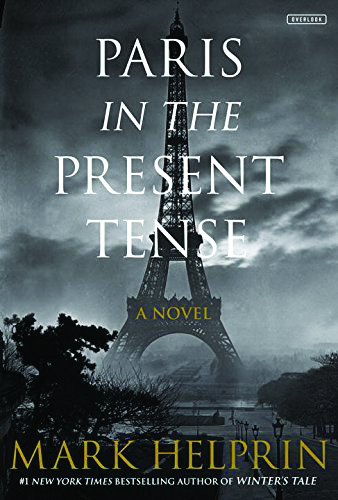
Paris in the Present Tense
by Mark Helprin
A 74-year-old artist and veteran lives between the beauty of the present and his past struggles.
Overlook Press
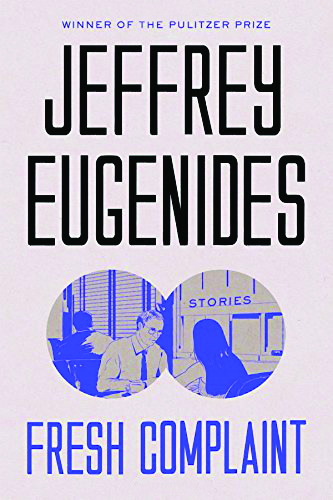
Fresh Complaint
Jeffrey Eugenides
This collection of short stories by one of our greatest authors is both brilliant and varied.
Farrar, Straus and Giroux
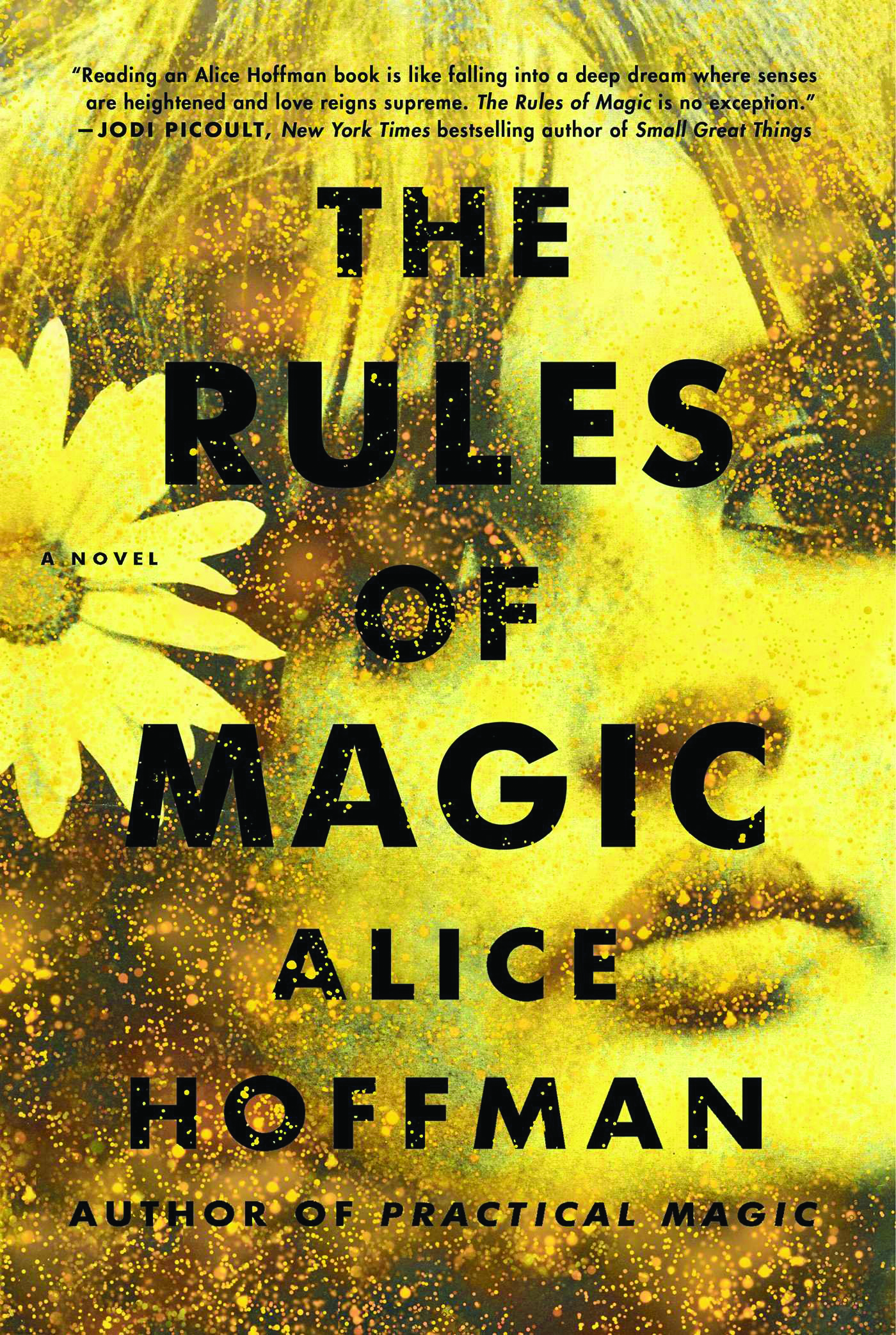
The Rules of Magic
by Alice Hoffman
The beloved author has written a prequel to her equally beloved Practical Magic.
Simon and Schuster
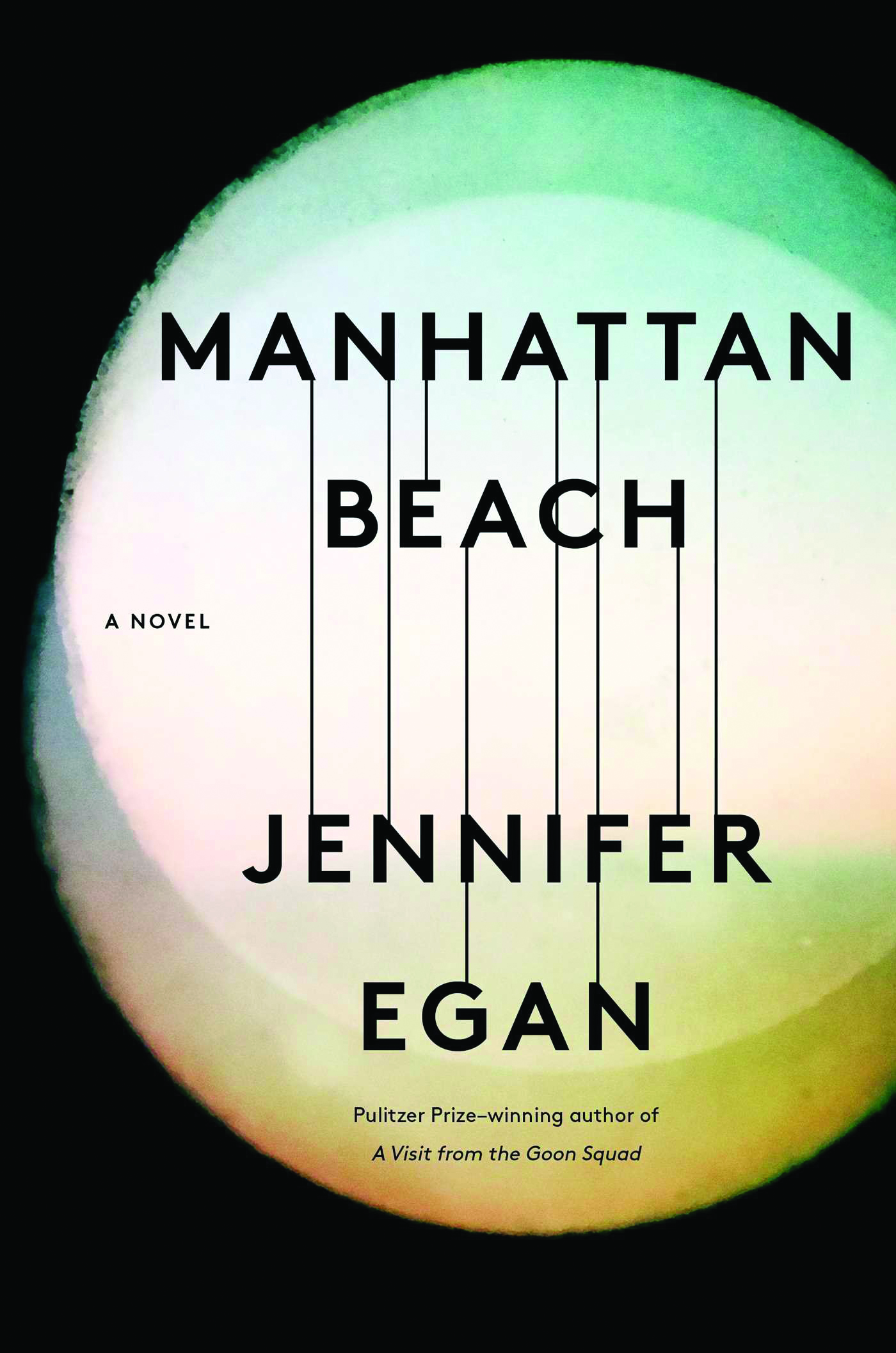
Manhattan Beach
by Jennifer Egan
During WWII, a woman becomes the first female diver at the Brooklyn Navy Yard, where she repairs ships.
Scribner
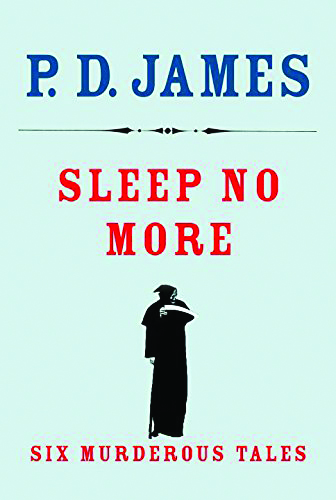
Sleep No More: Six Murderous Tales
by P.D. James
Here’s a collection of six short stories by the late, great master of the detective novel.
Knopf
Nonfiction
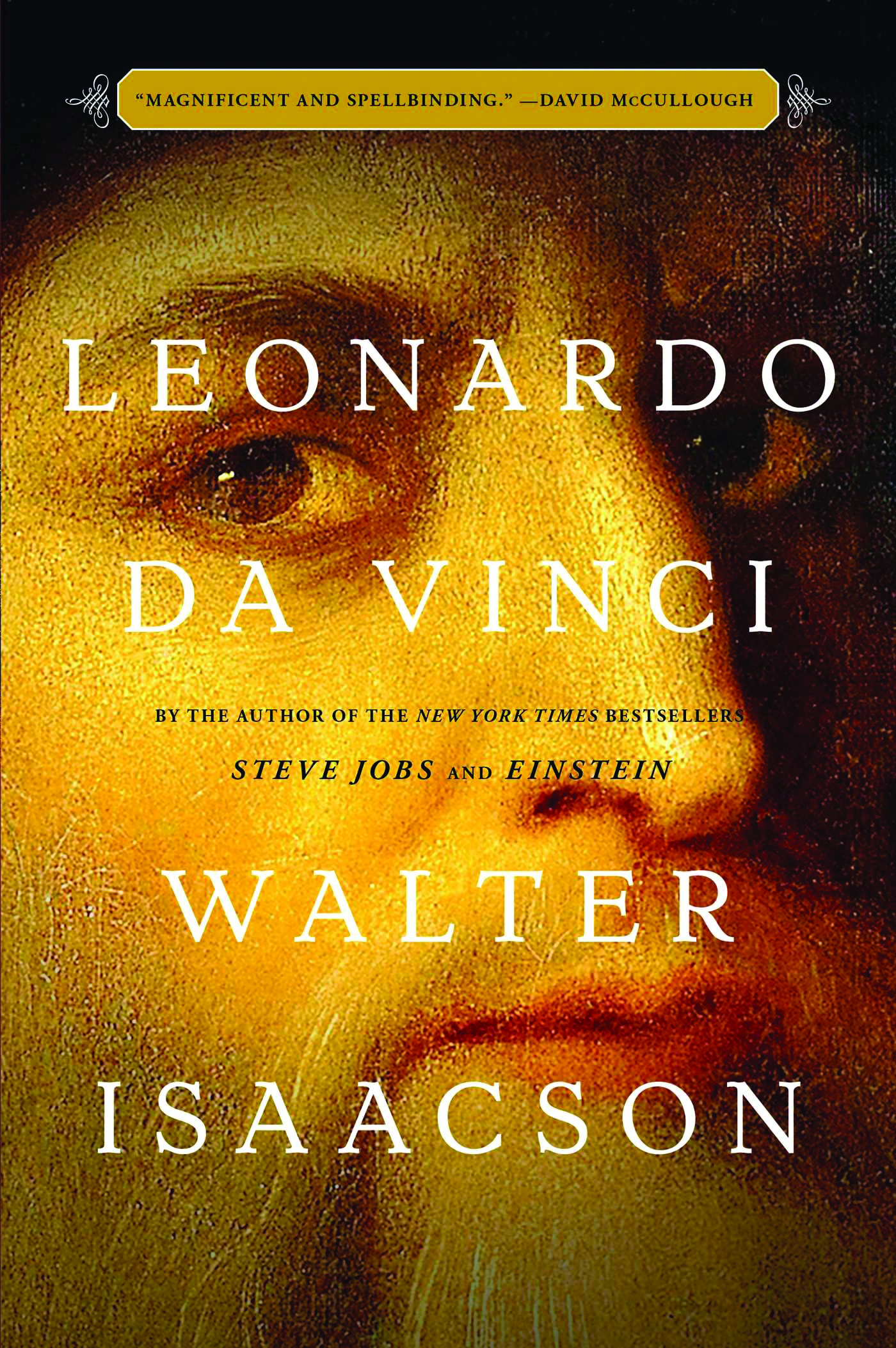
Leonardo da Vinci
by Walter Isaacson
The author paints a fascinating portrait from the Renaissance master’s notebooks.
Simon and Schuster
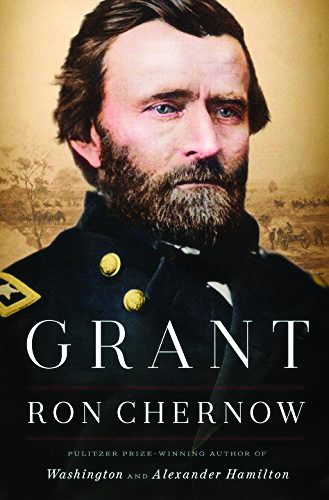
Grant
by Ron Chernow
Hamilton’s biographer has written a giant, gripping biography of one of the most misunderstood presidents in our history.
Penguin Press
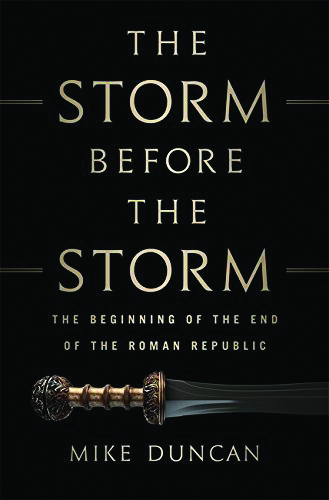
The Storm Before the Storm
by Mike Duncan
The creator of the wildly popular podcast The History of Rome sets the stage for the fall of the Republic.
PublicAffairs
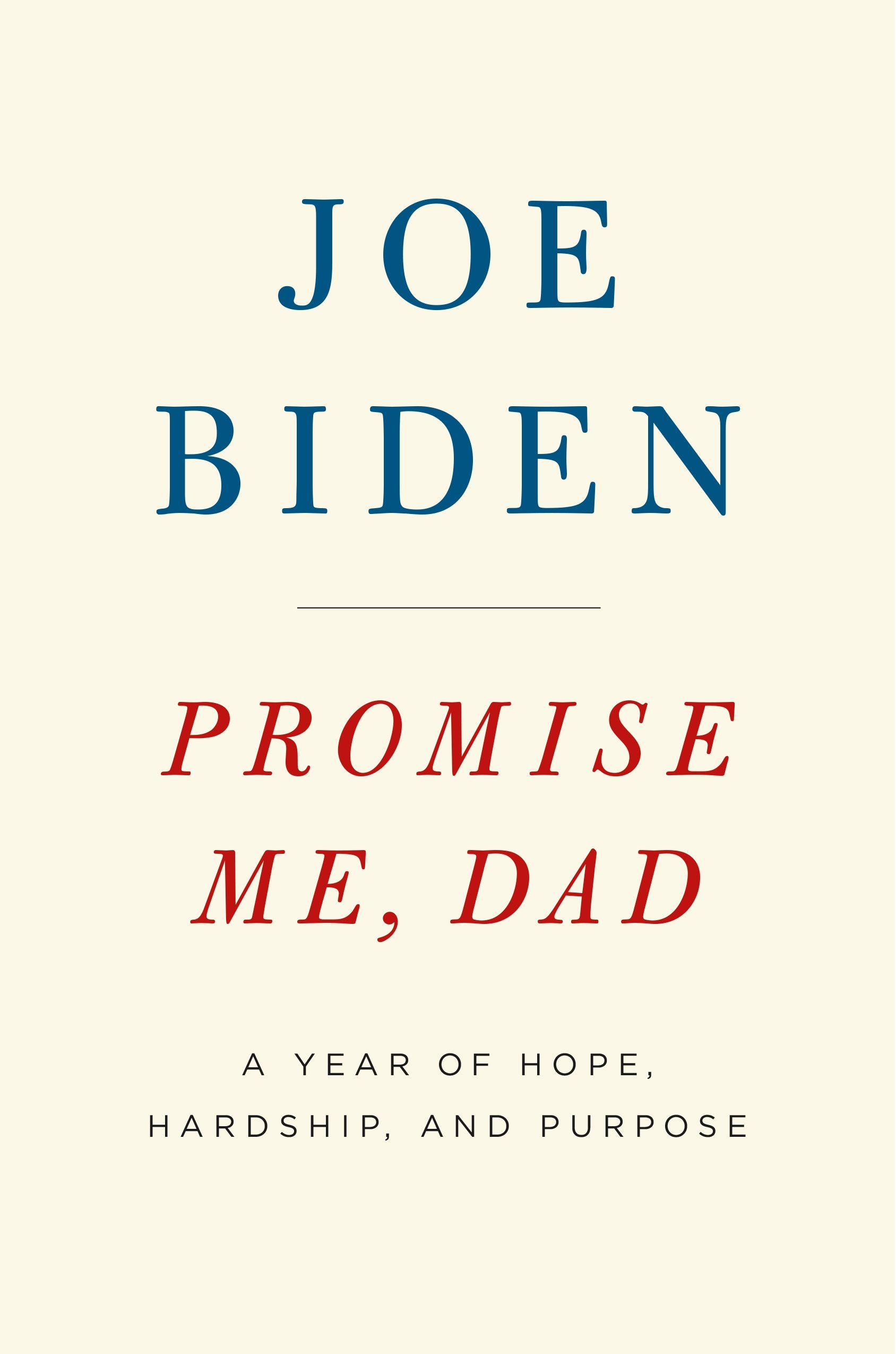
Promise Me, Dad
by Joe Biden
The former VP chronicles the year following the day his son Beau, diagnosed with malignant brain cancer, uttered those words.
Flatiron Books
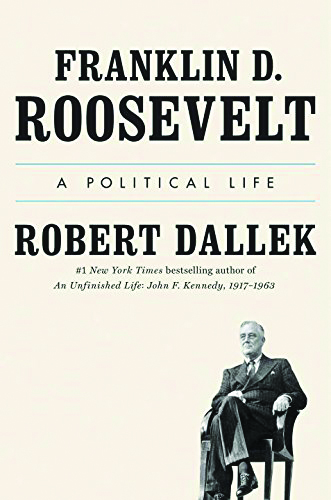
Franklin D. Roosevelt
by Robert Dallek
A one-volume biography of the incomparable politician and deal-maker.
Viking
Gifts
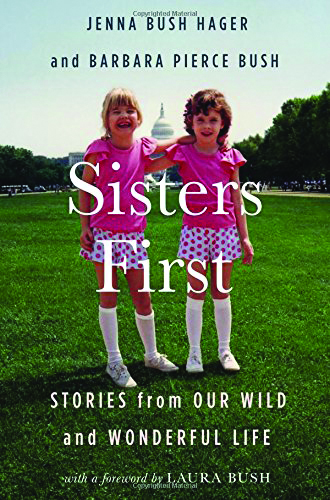
Sisters First
by Jenna Bush Hager and Barbara Pierce Bush
Former first daughters share family stories of adventure and sisterly bonds.
Grand Central Publishing
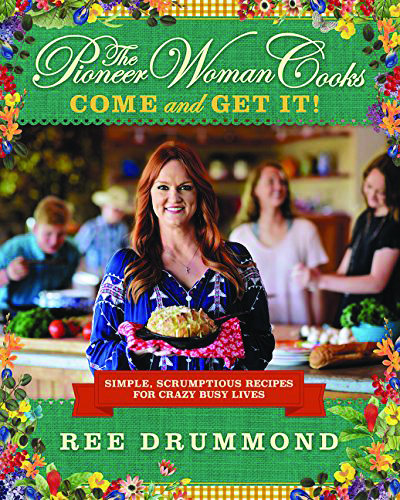
The Pioneer Woman Cooks
by Ree Drummond
What does the Pioneer Woman cook when she just doesn’t have the time?William Morrow
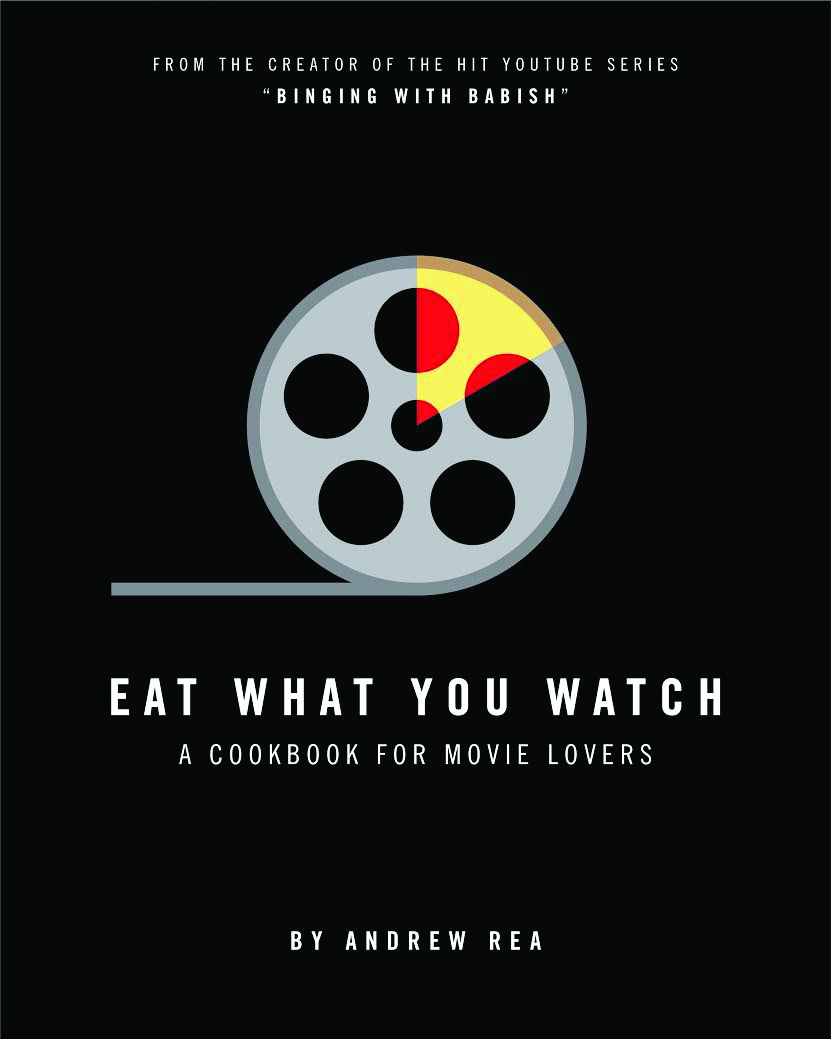
Eat What You Watch
by Andrew Rea
Recipes from more than 40 iconic movies make this the perfect gift for movie buffs and foodies alike.
Dovetail
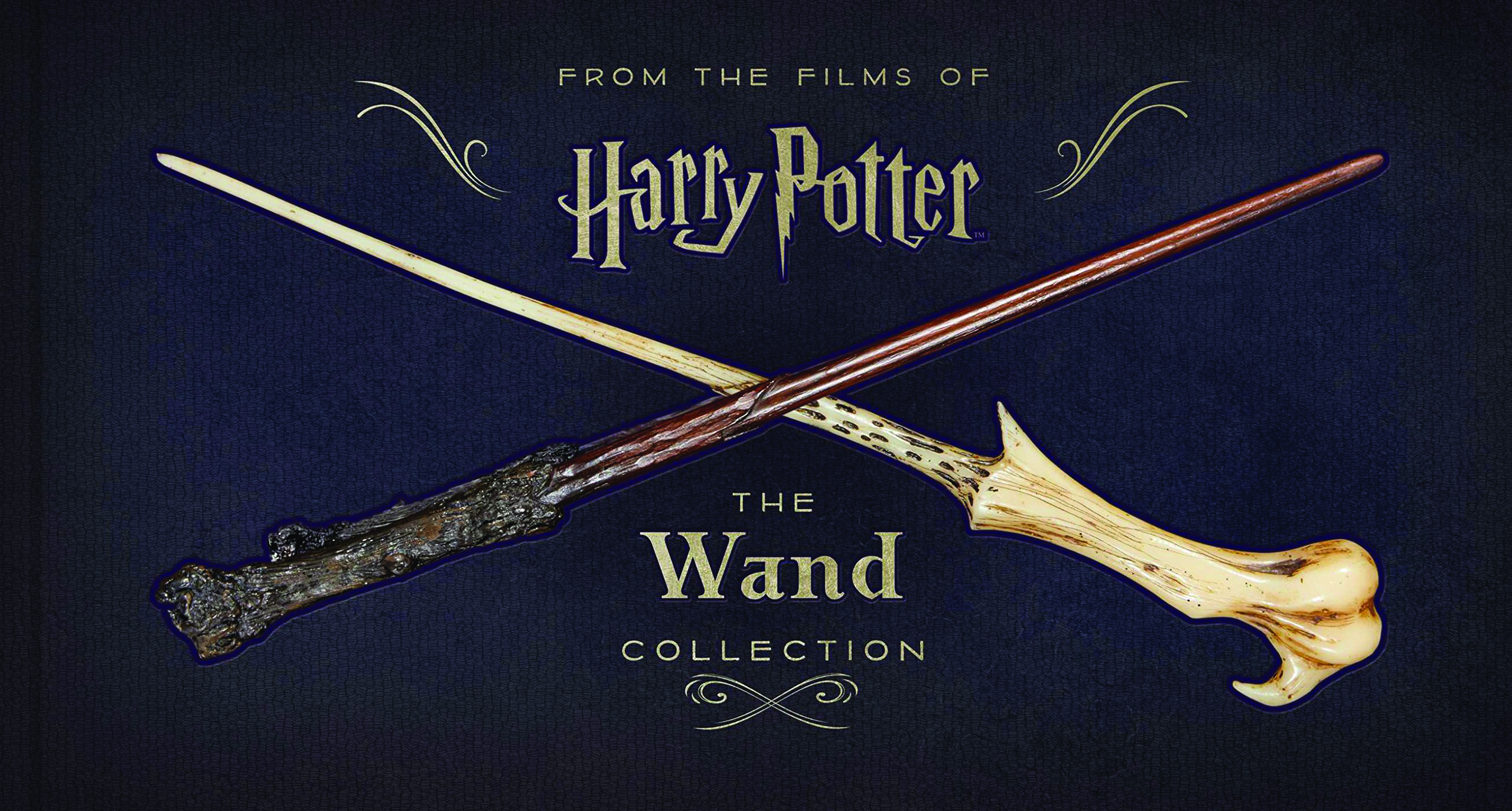
Harry Potter: The Wand Collection
by Insight Editions
This guide fits as well on your coffee table as it does on your child’s bookshelf.
Flatiron Books
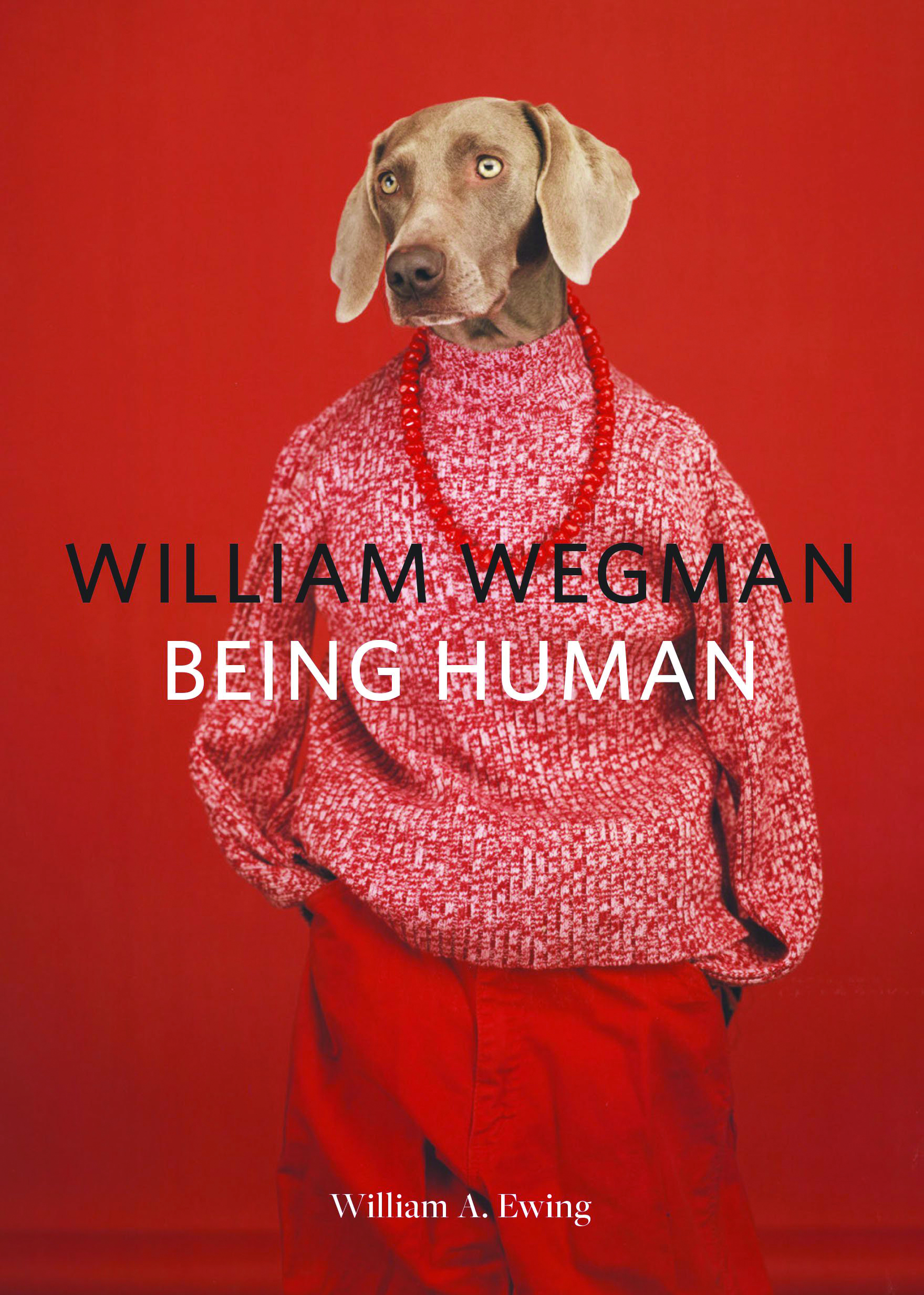
William Wegman: Being Human
by William A. Ewing
Enjoy more than 300 images from the artist’s personal archive.
Chronicle Books
This article is featured in the September/October 2017 issue of The Saturday Evening Post. Subscribe to the magazine for more art, inspiring stories, fiction, humor, and features from our archives.
One-on-One with the Author: Gary Svee
Spur Award-winning Western writer Gary Svee was born to be a cowboy. But maybe he was a century too late.
His fiction — such as Sanctuary, hailed as 1990’s best Western Novel by the Western Writers of America — often takes you back to an earlier time, when men rode horses, wore six-shooters, and traversed the sagebrush trails.
Gary shrugs at the description. “I write about Montana. I guess that makes me a Western writer, but I don’t know what that means. It reminds me of a reviewer writing that one of my books is an allegory. I had to look up ‘allegory’ to understand what I’d done.”
True to form, his original short story in this issue has a Western setting, but it’s actually set in the 1950s. And it’s a poignant Christmas story, not a blazing shootout in front of a corral.
“I stepped outside Montana in the books I read,” he says, explaining how he came to write this particular story. “And that led me to step outside a world with signs on saloon doors, ‘No dogs or Indians allowed.’ That’s what drove me to write ‘Henry’s Christmas,’ a Native American mother trying to shield
her son from the hatred that palled the Big Sky in the earlier years and resists closure.”
How did he come to be a writer? “I was raised in a family of storytellers,” he grins. “Stories feed stories, like the time a man shoved a pistol into Dad’s back and said, ‘I’m going to blow your guts out.’ When the assailant woke up, he was in jail. My big brother fly-fishing the Madison with a rattlesnake wrapped around his leg.
Going down a talus slope with my younger brother, hoping we would make it across before we went off the cliff at the bottom. Tough, soft, mean, glorious, bright, dim, people set like gems in a setting of sego lilies and dizzying mountains and sunsets that shade any artist’s palette. How could anyone resist writing?”
Among his more recent novels are Single Tree (1994), The Peacemaker’s Vengeance (2003), Showdown at Buffalo Jump (2003), and Outcast (2005).
His mentor was Dorothy M. Johnson (1905-1984), known for such classic Westerns as The Man Who Shot Liberty Valance, A Man Called Horse, and The Hanging Tree. Many of her short stories were published in the Post back in the ’40s. Svee says, “She was a premier Montana writer, my teacher at the University of Montana School of Journalism, and a friend.”
Gary Svee serves as a fiction advisor to the Post, feeding us ideas, critiquing our selections, and helping us to keep you entertained.
Does he have more Montana stories to tell? You bet. “I’ve been mired in a screenplay,” he reports, “but short stories keep popping into my head.” We’ll share them with you from time to time.
Do Americans Get Second Chances?
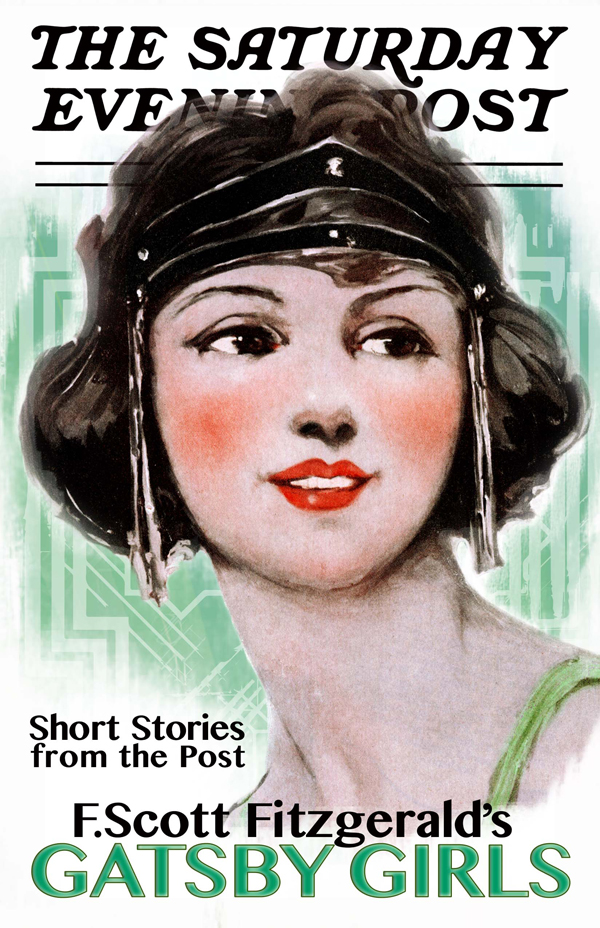
The Post can’t let September pass by without noting the birthday (September 24th) of one of its greatest contributors. F. Scott Fitzgerald published 69 of his short stories in our magazine between 1920 and 1937. He was the defining voice of the Jazz-Age generation—probably, as some have argued, because he invented it. Americans read his stories avidly, savoring their technical brilliance and looking for explanations for the brash, frantic young adults who were so unlike their parents.
He had an undeniable talent for storytelling, as well as skill in composing aphorisms. For example: “The test of a first-rate intelligence is the ability to hold two opposed ideas in mind at the same time and still retain the ability to function.”
But Fitzgerald’s work was rooted in doomed romance and thwarted ideals, which sometimes emerged in cynical expressions:
“I’m a romantic; a sentimental person thinks things will last, a romantic person hopes against hope that they won’t.”
“After all, life hasn’t much to offer except youth, and I suppose for older people, the love of youth in others.”
“Show me a hero and I’ll write you a tragedy.”
It was in this spirit that Fitzgerald wrote one of his most frequently quoted lines: “There are no second acts in American lives.”
It is a lone sentence, without context, found among the pages for a novel he never finished. Yet journalists often quote it when writing about failure. The phrase has been widely interpreted to mean that America gives no second chances. The value of the statement rests on its being written by Fitzgerald, who is presumably something of an authority on lost opportunities.
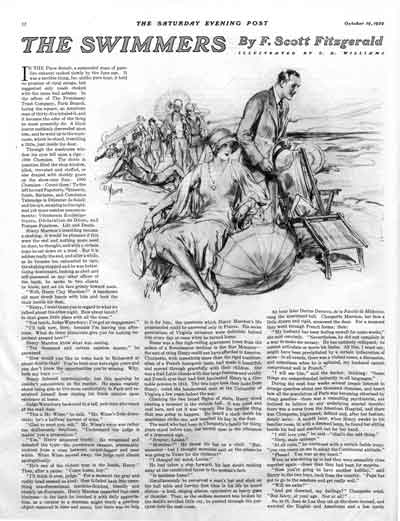
Did Fitzgerald Believe It?
Like many generalizations, it sounds more true than it, in fact, is. Generations of immigrants, for example, would argue the point. America was the great second act that spared millions of Europeans—the poor, unskilled, disadvantaged, and disgraced—from lives of obscurity and frustration.
Perhaps Fitzgerald meant Americans granted only one chance at success. If so, he was ignoring the comebacks of bankrupt author Mark Twain, failed Congressman Abraham Lincoln, and paralyzed ex-Assistant Navy Secretary Franklin Roosevelt. He was also disregarding the numerous new acts in the lives of Benjamin Franklin or Frederick Douglass.
Whatever faith Fitzgerald put into that sentence, it wasn’t shared by his contemporary, William Faulkner (born September 25, a year and a day after Fitzgerald). Faulkner was also a frequent contributor to the Post, which published 22 of his short stories between 1930 and 1967.
Faulkner was no romantic. In fact, he continually wrote of how romantic sentiments had crippled the South. His stories, which were almost all based in his native Mississippi, chronicled the South’s stubborn resistance to modern life and the damage done by hopes of resurrecting the past. His work earned him the Nobel Prize for literature in 1949.
He is perhaps less popular among American readers. His writing can be dense and convoluted. But he wrote about things that truly mattered, and were universal, not just Southern.
The Struggle That Lies Beyond Opportunity
In Faulkner’s Nobel acceptance speech, he looked far beyond second chances and missed opportunities, which limited a writer’s vision.
“The young man or woman writing today has forgotten the problems of the human heart in conflict with itself which alone can make good writing because only that is worth writing about, worth the agony and the sweat.
“[The writer] must learn them again. He must teach himself that the basest of all things is to be afraid; and, teaching himself that, forget it forever, leaving no room in his workshop for anything but the old verities and truths of the heart, the old universal truths lacking which any story is ephemeral and doomed—love and honor and pity and pride and compassion and sacrifice …
“I believe that man will not merely endure: He will prevail. He is immortal, not because he alone among creatures has an inexhaustible voice, but because he has a soul, a spirit capable of compassion and sacrifice and endurance. The poet’s, the writer’s, duty is to write about these things. It is his privilege to help man endure by lifting his heart, by reminding him of the courage and honor and hope and pride and compassion and pity and sacrifice which have been the glory of his past.”
After these noble thoughts from Faulkner, we should let Fitzgerald make the case for second acts in American lives. He does so in his short story, “The Swimmers.” In its conclusion, he writes of an American sailing for Europe:
“Watching the fading city, the fading shore, from the desk of the Majestic, he had a sense of overwhelming gratitude and of gladness that America was there, that under the ugly debris of industry the rich land still pushed up, incorrigibly lavish and fertile, and that in the heart of the leaderless people the old generosities and devotions fought on, breaking out sometimes in fanaticism and excess, but indomitable and undefeated. There was a lost generation in the saddle at the moment, but it seemed to him that the men coming on, the men of the war, were better; and all his old feeling that America was a bizarre accident, a sort of historical sport, had gone forever. The best of America was the best of the world …
“France was a land, England was a people, but America, having about it still that quality of the idea, was harder to utter—it was the graves at Shiloh and the tired, drawn, nervous faces of its great men, and country boys dying in the Argonne for a phrase that was empty before their bodies withered. It was a willingness of the heart.”
FAULKNER (1897-1962)
“Thrift,” Sept. 6, 1930
“Red Leaves,” Oct. 25, 1930
“Lizards in Jamshyd’s Courtyard,” Feb. 27, 1932
“Turn About,” March 5, 1932
“A Mountain Victory,” Dec. 3, 1932
“A Bear Hunt,” Feb 10, 1934
“Ambuscade,” Sept. 29, 1934
“Retreat,” Oct. 13, 1934
“Raid,” Nov. 3, 1934
“The Unvanquished,” Nov. 14, 1936
“Vendee,” Dec. 5, 1936
“Hand Upon the Waters,” Nov. 4, 1939
“Tomorrow,” Nov. 23, 1940
“The Tall Man,” May 31, 1941
“Two Soldiers,” March 28, 1942
“The Bear,” May 9, 1942
“Shingles for the Lord,” Feb. 13, 1943
“Race at Morning,” March 5, 1955
“The Waifs,” May 4, 1957
“Hell Creek Crossing,” March 31, 1962
“Mr. Acarius,” Oct. 9, 1965
“The Wishing Tree,” April 8, 1967
FITZGERALD stories and articles (1896-1940)
“Head and Shoulders,” Feb. 21, 1920
“Myra Meets His Family,” March 20, 1920
“The Camel’s Back,” April 24, 1920
“Bernice Bobs Her Hair,” May 1, 1920
“The Ice Palace,” May 22, 1920
“The Offshore Pirate,” May 29, 1920
“The Popular Girl,” Feb 11, Feb. 18, 1922
“Gretchen’s Forty Winks,” March 15, 1924
“How to Live on $36,000 a Year,” April 5, 1924
“The Third Casket,” May 31, 1924
“The Unspeakable Egg,” July 12, 1924
“John Jackson’s Arcady,” July 26, 1924
“How to Live on Practically Nothing a Year,” Sept. 20, 1924
“Love in the Night,” March 14, 1925
“A Penny Spent,” Oct. 10, 1925
“Presumption,” Jan. 9, 1926
“The Adolescent Marriage,” March 6, 1926
“Jacob’s Ladder,” Aug. 20, 1927
“The Love Boat,” Oct. 8, 1927
“A Short Trip Home,” Dec. 17, 1927
“Bowl,” Jan. 21, 1928
“Magnetism,” March 3, 1928
“The Scandal Detectives,” April 28, 1928
“A Night of the Fair,” July 21, 1928
“The Freshest Boy,” July 28, 1928
“He Thinks He Is Wonderful,” Sept. 29, 1928
“The Captured Shadow,” Dec. 29, 1928
“The Perfect Life,” Jan. 5, 1929
“The Last of the Belles,” March 2, 1929
“Forging Ahead,” March 30, 1929
“Basil and Cleopatra,” April 27, 1929
“The Rough Crossing,” June 8, 1929
“Majesty,” July 13, 1929
“At Your Age,” Aug. 17, 1929
“The Swimmers,” Oct. 19, 1929
“Two Wrongs,” Jan. 18, 1930
“First Blood,” April 5, 1930
“A Millionaire’s Girl,” May 17, 1930
“A Nice Quiet Place,” May 31, 1930
“The Bridal Party,” Aug. 9, 1930
“A Woman With a Past,” Sept. 6, 1930
“Our Trip Abroad,” Oct. 11, 1930
“A Snobbish Story,” Nov. 29, 1930
“The Hotel Child,” Jan. 31, 1931
“Babylon Revisited,” Feb. 21, 1931
“Indecision,” May 16, 1931
“A New Leaf,” July 4, 1931
“Emotional Bankruptcy,” Aug. 15, 1931
“Between Three and Four,” Sept. 5, 1931
“A Change of Class,” Sept. 26, 1931
“A Freeze-Out,” Dec. 19, 1931
“Diagnosis,” Feb. 20, 1932
“Flight and Pursuit,” May 14, 1932
“Family in the Wind,” Jun 4, 1932
“The Rubber Check,” Aug 6, 1932
“What a Handsome Pair!” Aug 27, 1932
“One Interne,” Nov 5, 1932
“One Hundred False Starts,” March 4, 1933
“On Schedule,” March 18, 1933
“More than Just a House,” June 24, 1933
“I Got Shoes,” Sept. 23, 1933
“The Family Bus,” Nov. 4, 1933
“No Flowers,” July 21, 1934
“New Types,” Sept. 22, 1934
“Her Last Case,” Nov. 3, 1934
“Zone of Accident,” July 13, 1935
“Too Cute For Words,” April 18, 1936
“Inside the House,” June 13, 1936
“Trouble,” March 6, 1937